La guerra per amore
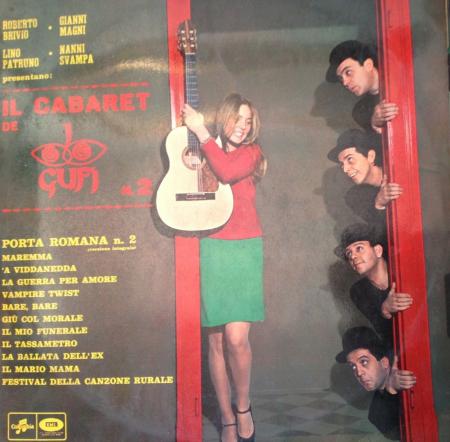
Di Gabellone-Patruno, in "il Cabaret de i Gufi N.2", EMI italiana, 1967
È bello morire in guerra
(Continues)
(Continues)
Contributed by Piersante Sestini 2005/6/9 - 22:04
L'Internationale: Probably the most complete page in the world on the workers' world hymn, which also has a strong antimilitarist element. The page contains up to now over 100 versions and translations.
Riccardo Venturi 2005/6/9 - 20:58
L'Internationale

UNGHERESE / HUNGARIAN [1]
La versione standard completa in lingua ungherese di Ernő Bresztovszky (1882-1922), risalente al 1904.
The standard Hungarian version by Ernő Bresztovszky (1882-1922) [1904]
Az Internacionálé a nemzetközi munkásmozgalom legelterjedtebb mozgalmi dala. Az eredeti francia szöveget Eugène Pottier (1816-1887) írta 1871-ben, zenéjét Pierre Degeyter (1848-1932) szerezte 1888-ban.
Az Internacionálét lefordították a világ legtöbb nyelvére. Magyarra Bresztovszky Ernő ültette át 1904-ben. Az orosz változat a Szovjetunió Nemzeti himnusza volt 1944-ig.
Magyar Wikipédia
La versione standard completa in lingua ungherese di Ernő Bresztovszky (1882-1922), risalente al 1904.
The standard Hungarian version by Ernő Bresztovszky (1882-1922) [1904]
Az Internacionálé a nemzetközi munkásmozgalom legelterjedtebb mozgalmi dala. Az eredeti francia szöveget Eugène Pottier (1816-1887) írta 1871-ben, zenéjét Pierre Degeyter (1848-1932) szerezte 1888-ban.
Az Internacionálét lefordították a világ legtöbb nyelvére. Magyarra Bresztovszky Ernő ültette át 1904-ben. Az orosz változat a Szovjetunió Nemzeti himnusza volt 1944-ig.
Magyar Wikipédia
AZ INTERNACIONÁLÉ
(Continues)
(Continues)
2005/6/8 - 01:13
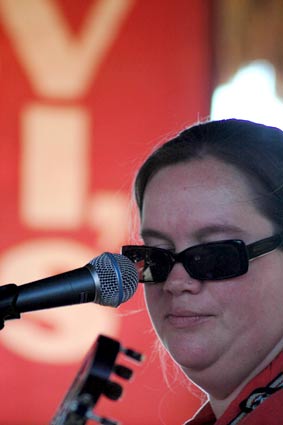
AFRIKAANS / AFRIKAANS
Versione in lingua Afrikaans di Liela Groenewald
Afrikaans version by Liela Groenewald
2009
La versione in lingua Afrikaans della sociologa e musicista Liela Groenewald (che spesso la interpreta assieme a Mervin Williams) è recente: è stata composta nel 2009. Fino ad allora non esisteva una versione in lingua Afrikaans. Si ricorda però che nella Repubblica Sudafricana l’Internazionale (nelle versioni inglesi ed in varie lingue africane) rimase severamente proibita per tutto il periodo dell’Apartheid. La versione in Afrikaans è una tipica versione a due strofe con ritornello.
The Afrikaans version by the sociologist and musician Liela Groenewald (who often performs it together with Mervin Williams) is not old: it was written in 2009. A version in Afrikaans did not exist until then, but the Internationale (in any of its versions in English and in African languages)... (Continues)
Versione in lingua Afrikaans di Liela Groenewald
Afrikaans version by Liela Groenewald
2009
La versione in lingua Afrikaans della sociologa e musicista Liela Groenewald (che spesso la interpreta assieme a Mervin Williams) è recente: è stata composta nel 2009. Fino ad allora non esisteva una versione in lingua Afrikaans. Si ricorda però che nella Repubblica Sudafricana l’Internazionale (nelle versioni inglesi ed in varie lingue africane) rimase severamente proibita per tutto il periodo dell’Apartheid. La versione in Afrikaans è una tipica versione a due strofe con ritornello.
The Afrikaans version by the sociologist and musician Liela Groenewald (who often performs it together with Mervin Williams) is not old: it was written in 2009. A version in Afrikaans did not exist until then, but the Internationale (in any of its versions in English and in African languages)... (Continues)
Die Internasionale
(Continues)
(Continues)
ALBANESE / ALBANIAN 1
Versione albanese standard di Aleksandër Stavre Drenova (Asdreni) (1872-1947)
Albanian standard version by Aleksandër Stavre Drenova (Asdreni) (1872-1947)
La questione della versione dell’Internazionale in lingua albanese è complessa. La versione “standard”, testimoniata da parecchie fonti e video, è la tipica versione delle dittature staliniste: esclusivamente la strofa iniziale e il ritornello. Rimasta in uso durante tutto il periodo del regime (1944-1991), fu la “versione ufficiale” di partito, senza variazioni e -probabilmente- stabilita per legge; se ne ha un video dove la canta (stonatissimo) persino lo stesso Enver Hoxha:
Per lunghissimi anni si è creduto che si trattasse di una versione totalmente anonima, o comunque il cui autore si fosse perduto; ciononostante, il sospetto che derivasse da una versione completa, o quantomeno più lunga, è sempre serpeggiato... (Continues)
Versione albanese standard di Aleksandër Stavre Drenova (Asdreni) (1872-1947)
Albanian standard version by Aleksandër Stavre Drenova (Asdreni) (1872-1947)
La questione della versione dell’Internazionale in lingua albanese è complessa. La versione “standard”, testimoniata da parecchie fonti e video, è la tipica versione delle dittature staliniste: esclusivamente la strofa iniziale e il ritornello. Rimasta in uso durante tutto il periodo del regime (1944-1991), fu la “versione ufficiale” di partito, senza variazioni e -probabilmente- stabilita per legge; se ne ha un video dove la canta (stonatissimo) persino lo stesso Enver Hoxha:
Per lunghissimi anni si è creduto che si trattasse di una versione totalmente anonima, o comunque il cui autore si fosse perduto; ciononostante, il sospetto che derivasse da una versione completa, o quantomeno più lunga, è sempre serpeggiato... (Continues)
Internacionale
(Continues)
(Continues)
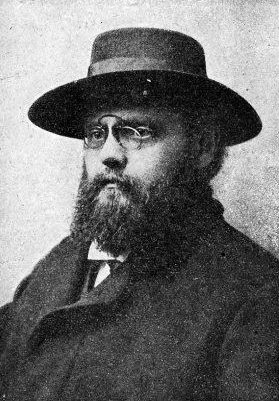
CECO / CZECH
La versione ceca di Antonín Macek e Josef Skalák
Czech version by Antonín Macek and Josef Skalák
1903
Della versione ceca eseguita nel 1903 dallo scrittore, giornalista e drammaturgo Antonín Macek (1872-1923) e dal giornalista (e, in seguito, esponente politico) Josef (Józa) Skalák (1874-1968) si conoscono soltanto due strofe e il ritornello. In realtà è possibile che la versione sia stata completa, ma sono state tramandate soltanto le due strofe fatte per essere effettivamente imparate e cantate (un tratto comune a quasi tutte le versioni dell’Internazionale). La versione appare palesemente modellata su quella classica russa di Aron Kots, del resto risalente all’anno immediatamente precedente.
The Czech version was translated in 1903 by the writer, journalist, and playwright Antonín Macek (1872–1923) and the journalist (and, later, politician) Josef (Józa) Skalák (1874–1968).... (Continues)
La versione ceca di Antonín Macek e Josef Skalák
Czech version by Antonín Macek and Josef Skalák
1903
Della versione ceca eseguita nel 1903 dallo scrittore, giornalista e drammaturgo Antonín Macek (1872-1923) e dal giornalista (e, in seguito, esponente politico) Josef (Józa) Skalák (1874-1968) si conoscono soltanto due strofe e il ritornello. In realtà è possibile che la versione sia stata completa, ma sono state tramandate soltanto le due strofe fatte per essere effettivamente imparate e cantate (un tratto comune a quasi tutte le versioni dell’Internazionale). La versione appare palesemente modellata su quella classica russa di Aron Kots, del resto risalente all’anno immediatamente precedente.
The Czech version was translated in 1903 by the writer, journalist, and playwright Antonín Macek (1872–1923) and the journalist (and, later, politician) Josef (Józa) Skalák (1874–1968).... (Continues)
Internacionála
(Continues)
(Continues)
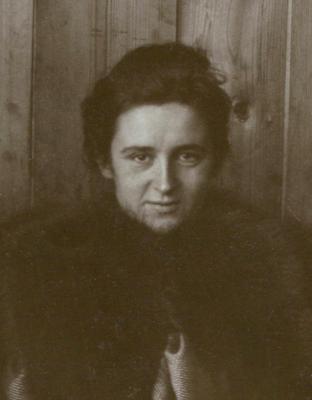
POLACCO / POLISH
La versione polacca di Maria Markowska
Polish version by Maria Markowska
1903
La classica Internazionale in lingua polacca, la Międzynarodówka, è una versione antica (1903) e presenta caratteri originali pur derivando almeno in parte dalla versione russa. Almeno nella sua stesura completa presenta cinque strofe più il ritornello (comunemente cantate sono la prima e l’ultima) e si contraddistingue per essere tra le pochissime in cui, nel ritornello, non compare assolutamente il termine “Internazionale” sebbene sia presente, “polonizzato”, nel titolo (derivante dall’aggettivo międzynarodowy “internazionale”; quindi “la [canzone] internazionale”). La versione è inoltre tra le non molte dovute ad una donna, la poetessa proletaria e rivoluzionaria Maria Markowska (1878-1939).
The classic Internationale in Polish, the Międzynarodówka, is an early version (1903) and shows original... (Continues)
La versione polacca di Maria Markowska
Polish version by Maria Markowska
1903
La classica Internazionale in lingua polacca, la Międzynarodówka, è una versione antica (1903) e presenta caratteri originali pur derivando almeno in parte dalla versione russa. Almeno nella sua stesura completa presenta cinque strofe più il ritornello (comunemente cantate sono la prima e l’ultima) e si contraddistingue per essere tra le pochissime in cui, nel ritornello, non compare assolutamente il termine “Internazionale” sebbene sia presente, “polonizzato”, nel titolo (derivante dall’aggettivo międzynarodowy “internazionale”; quindi “la [canzone] internazionale”). La versione è inoltre tra le non molte dovute ad una donna, la poetessa proletaria e rivoluzionaria Maria Markowska (1878-1939).
The classic Internationale in Polish, the Międzynarodówka, is an early version (1903) and shows original... (Continues)
Międzynarodówka
(Continues)
(Continues)
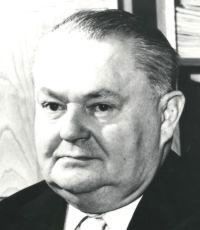
SLOVACCO / SLOVAK
Versione slovacca di Milan Lajčiak e Rudolf Fabry
Slovak version by Milan Lajčiak and Rudolf Fábry
1949
La versione slovacca dello scrittore, giornalista e diplomatico Milan Lajčiak (1926-1987) e del poeta, scrittore e giornalista Rudolf Fabry (1915-1982) -noto anche per essere stato un esponente del surrealismo in Slovacchia- risale al 1949. A differenza della versione ceca, dalla quale riprende comunque alcune caratteristiche, è una versione a tre strofe + ritornello (se ne cantano comunque comunemente due, la prima e l’ultima); in ultima analisi, è anch’essa piuttosto fedele alla versione russa classica. La versione slovacca è parecchio posteriore a quella ceca: in pratica, fu fatta preparare soltanto dopo l’instaurazione della Cecoslovacchia socialista (1948). Fino ad allora, in Slovacchia si cantava la versione ceca.
The Slovak version by the writer, journalist... (Continues)
Versione slovacca di Milan Lajčiak e Rudolf Fabry
Slovak version by Milan Lajčiak and Rudolf Fábry
1949
La versione slovacca dello scrittore, giornalista e diplomatico Milan Lajčiak (1926-1987) e del poeta, scrittore e giornalista Rudolf Fabry (1915-1982) -noto anche per essere stato un esponente del surrealismo in Slovacchia- risale al 1949. A differenza della versione ceca, dalla quale riprende comunque alcune caratteristiche, è una versione a tre strofe + ritornello (se ne cantano comunque comunemente due, la prima e l’ultima); in ultima analisi, è anch’essa piuttosto fedele alla versione russa classica. La versione slovacca è parecchio posteriore a quella ceca: in pratica, fu fatta preparare soltanto dopo l’instaurazione della Cecoslovacchia socialista (1948). Fino ad allora, in Slovacchia si cantava la versione ceca.
The Slovak version by the writer, journalist... (Continues)
Internacionála
(Continues)
(Continues)
Contributed by Riccardo Venturi 2005/6/8 - 01:49
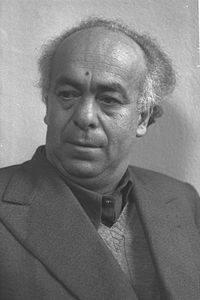
EBRAICO / HEBREW [1]
La versione standard completa in lingua ebraica moderna, cantata nello stato di Israele. La versione è di Avraham Shlonsky (1900-1973), famoso poeta e letterato israeliano nato nell'ex impero zarista. Originariamente ripresa dal sito del Partito Comunista Israeliano, dal quale abbiamo ripreso anche la versione araba completa (ci sembra una cosa cui dare risalto). La versione è data in grafia puntata.
The standard complete modern Hebrew version as it normally sung in the state of Israel. Translated by Avraham Shlonsky (1900-1973), a celebrated Israeli poet and editor born in the Russian empire. Originally reproduced from the website of the Israeli Communist Party, from which we have also reproduced the Arabic version (a thing we should like to emphasize). The version is given here in pointed spelling.
האינטרנציונל הוא המנון הפועלים הבינלאומי. מילותיו נכתבו ב-1871... (Continues)
La versione standard completa in lingua ebraica moderna, cantata nello stato di Israele. La versione è di Avraham Shlonsky (1900-1973), famoso poeta e letterato israeliano nato nell'ex impero zarista. Originariamente ripresa dal sito del Partito Comunista Israeliano, dal quale abbiamo ripreso anche la versione araba completa (ci sembra una cosa cui dare risalto). La versione è data in grafia puntata.
The standard complete modern Hebrew version as it normally sung in the state of Israel. Translated by Avraham Shlonsky (1900-1973), a celebrated Israeli poet and editor born in the Russian empire. Originally reproduced from the website of the Israeli Communist Party, from which we have also reproduced the Arabic version (a thing we should like to emphasize). The version is given here in pointed spelling.
האינטרנציונל הוא המנון הפועלים הבינלאומי. מילותיו נכתבו ב-1871... (Continues)
הָאִינְטֶרְנַצְיוֹנָל [1]
(Continues)
(Continues)
Contributed by Riccardo Venturi 2005/6/8 - 01:54
ARABO / ARABIC
Versione in arabo moderno comune
Common Modern Arabic version
Interpretata da / Performed by Wael El Meskini.
La seguente versione in Arabo moderno comune “è diffusa tra alcuni movimenti e partiti del Levante e del Nord Africa” (ar.wikipedia). In realtà, l’Internazionale non è mai stato un canto particolarmente noto nei paesi di lingua araba. Come è lecito attendersi, nulla si sa dell’autore della versione, basata comunque sull’originale francese ma con alcune divergenze.
The following version in Common Modern Arabic “is widespread among a number of movements and parties of Middle East and North Africa” (ar.wikipedia). As a matter of fact, the Internationale has never been particularly known and sung in the Arab countries. As might be expected, nothing is known about the author of the version, which is based on the French original but with some divergences.
تب نشيد "الأممية"... (Continues)
Versione in arabo moderno comune
Common Modern Arabic version
Interpretata da / Performed by Wael El Meskini.
La seguente versione in Arabo moderno comune “è diffusa tra alcuni movimenti e partiti del Levante e del Nord Africa” (ar.wikipedia). In realtà, l’Internazionale non è mai stato un canto particolarmente noto nei paesi di lingua araba. Come è lecito attendersi, nulla si sa dell’autore della versione, basata comunque sull’originale francese ma con alcune divergenze.
The following version in Common Modern Arabic “is widespread among a number of movements and parties of Middle East and North Africa” (ar.wikipedia). As a matter of fact, the Internationale has never been particularly known and sung in the Arab countries. As might be expected, nothing is known about the author of the version, which is based on the French original but with some divergences.
تب نشيد "الأممية"... (Continues)
[1] نشيد الامميه
(Continues)
(Continues)
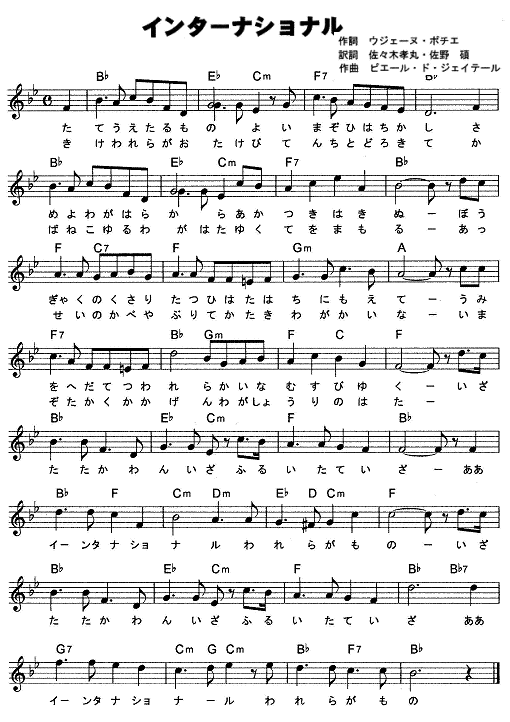
GIAPPONESE / JAPANESE
La versione standard in lingua giapponese di Kenichi Okamoto (1921 o 1922).
Standard Japanese version by Kenichi Okamoto
[1921 or 1922]
* 訳詩:1921-22 年、佐々木孝丸・佐野碩、戦旗社版プロレタリア歌曲集より
インターナショナル(フランス語:L'Internationale、ロシア語:Интернационал)は、社会主義者の歌の一つ。1917年から1944年の間、ソビエト連邦の国歌でもあった。
オリジナルであるフランス語の歌詞は、1871年にウジェーヌ・ポティエ(Eugène Pottier; 1816年 - 1887年)の手によって、曲は1888年にピエール・ドゥジェイテル(Pierre Degeyter; 1848年 - 1932年)の手によって作られた。その歌詞は、ロシア語を初め、色々な言語に翻訳されている。日本語の場合、翻訳というよりもむしろ翻案にも近いとも言える。具体的な歌詞内容については下記の外部リンクを参照。
歌としての分類は革命歌に属する。日本語詞は1922年に佐々木孝丸によって付けられたが、現在主に歌われているのは1929年頃に佐々木孝丸と佐野碩が改訳したものである。党派によっては採用している歌詞に微妙な差異が存在する場合がある。
La versione standard in lingua giapponese di Kenichi Okamoto (1921 o 1922).
Standard Japanese version by Kenichi Okamoto
[1921 or 1922]
* 訳詩:1921-22 年、佐々木孝丸・佐野碩、戦旗社版プロレタリア歌曲集より
インターナショナル(フランス語:L'Internationale、ロシア語:Интернационал)は、社会主義者の歌の一つ。1917年から1944年の間、ソビエト連邦の国歌でもあった。
オリジナルであるフランス語の歌詞は、1871年にウジェーヌ・ポティエ(Eugène Pottier; 1816年 - 1887年)の手によって、曲は1888年にピエール・ドゥジェイテル(Pierre Degeyter; 1848年 - 1932年)の手によって作られた。その歌詞は、ロシア語を初め、色々な言語に翻訳されている。日本語の場合、翻訳というよりもむしろ翻案にも近いとも言える。具体的な歌詞内容については下記の外部リンクを参照。
歌としての分類は革命歌に属する。日本語詞は1922年に佐々木孝丸によって付けられたが、現在主に歌われているのは1929年頃に佐々木孝丸と佐野碩が改訳したものである。党派によっては採用している歌詞に微妙な差異が存在する場合がある。
あゝインターナショナル
(Continues)
(Continues)
GIAPPONESE / JAPANESE
La traslitterazione in caratteri latini (romaji) della precedente versione in lingua giapponese.
Romanized (Rōmaji) Japanese version by Kenichi Okamoto [1921]
La traslitterazione in caratteri latini (romaji) della precedente versione in lingua giapponese.
Romanized (Rōmaji) Japanese version by Kenichi Okamoto [1921]
INTĀNASHIONĀRU
(Continues)
(Continues)
CINESE (SEMPLIFICATO) [2] / (SIMPLIFIED) CHINESE [2]
La versione standard in Cinese semplificato
Standard version in Simplified Chinese
La versione standard in Cinese semplificato
Standard version in Simplified Chinese
国际歌
(Continues)
(Continues)

COREANO / KOREAN 1
Versione del Partito Comunista di Corea
Version by the Communist Party of Korea
ca. 1920
Questa sembra essere la prima versione in assoluto dell’Internazionale in lingua coreana. Risale a circa gli anni ‘20 del XX secolo; la versione fu preparata dal Partito Comunista di Corea (Joseon). Il contesto storico è l’intera penisola coreana sotto occupazione giapponese; meglio sarebbe dire che si trattava di una pura e semplice annessione, dato che la Corea era allora parte integrante dell’Impero Nipponico e sottoposta alle sue leggi. Il Partito Comunista di Corea, al pari di quello del Giappone, agiva nella clandestinità, e non deve quindi stupire che la versione coreana sia, in linea di massima, una traduzione della versione giapponese di Kenichi Okamoto. Poiché tale versione risale al 1921 o 1922, è probabile che la versione coreana risalga esattamente a quegli anni. Forniamo... (Continues)
Versione del Partito Comunista di Corea
Version by the Communist Party of Korea
ca. 1920
Questa sembra essere la prima versione in assoluto dell’Internazionale in lingua coreana. Risale a circa gli anni ‘20 del XX secolo; la versione fu preparata dal Partito Comunista di Corea (Joseon). Il contesto storico è l’intera penisola coreana sotto occupazione giapponese; meglio sarebbe dire che si trattava di una pura e semplice annessione, dato che la Corea era allora parte integrante dell’Impero Nipponico e sottoposta alle sue leggi. Il Partito Comunista di Corea, al pari di quello del Giappone, agiva nella clandestinità, e non deve quindi stupire che la versione coreana sia, in linea di massima, una traduzione della versione giapponese di Kenichi Okamoto. Poiché tale versione risale al 1921 o 1922, è probabile che la versione coreana risalga esattamente a quegli anni. Forniamo... (Continues)
인터내셔널 [1]
(Continues)
(Continues)
Contributed by CCG/AWS Staff 2005/6/8 - 02:10
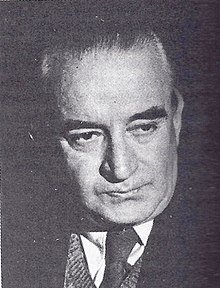
CROATO [1] / CROAT [1]
La versione completa in croato è, in pratica, la versione del serbo Milan Bogdanović adattata alle caratteristiche linguistiche croate; ma la si potrebbe considerare come una vera e propria “versione serbocroata” o “jugoslava”. Non è comunque comunemente cantata, né lo è stata mai. La questione dell'Internazionale nel sistema linguistico serbocroato è complessa, per non dire ingarbugliata: diverse fonti, ad esempio, sostituiscono la prima strofa (e, non di rado, anche il ritornello) di questa versione con la più comune versione del Partito Comunista Jugoslavo, per poi continuare con il testo di Milan Bogdanović.
The complete version in Croat is, in practice, Milan Bogdanović's Serbian version adapted to the Croatian linguistic characters; but it may be seen as a true “Serbo-Croatian” or “Yugoslav” version. Anyway, this version is not, and has never been, commonly... (Continues)
La versione completa in croato è, in pratica, la versione del serbo Milan Bogdanović adattata alle caratteristiche linguistiche croate; ma la si potrebbe considerare come una vera e propria “versione serbocroata” o “jugoslava”. Non è comunque comunemente cantata, né lo è stata mai. La questione dell'Internazionale nel sistema linguistico serbocroato è complessa, per non dire ingarbugliata: diverse fonti, ad esempio, sostituiscono la prima strofa (e, non di rado, anche il ritornello) di questa versione con la più comune versione del Partito Comunista Jugoslavo, per poi continuare con il testo di Milan Bogdanović.
The complete version in Croat is, in practice, Milan Bogdanović's Serbian version adapted to the Croatian linguistic characters; but it may be seen as a true “Serbo-Croatian” or “Yugoslav” version. Anyway, this version is not, and has never been, commonly... (Continues)
INTERNACIONALA
(Continues)
(Continues)
Contributed by Riccardo Venturi 2005/6/8 - 02:15
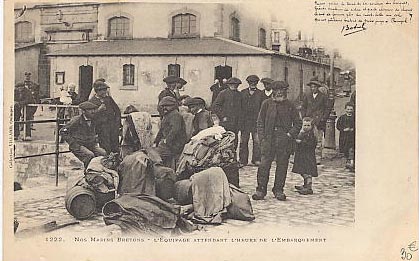
BRETONE / BRETON 1
War zao! - La versione bretone di "Kerlann"
War zao! - Breton version by "Kerlann"
> 1938
La seguente versione è probabilmente quella più conosciuta in lingua bretone. Generalmente è ritenuta anonima; ma un volantino reperito presso la Bibliothèque IDBE (documento .pdf) si vede la versione, intitolata War zao! (“In piedi!”, che rende la prima parola dell’Internazionale originale, Debout!) accompagnata dalla versione originale di Pottier e firmata in calce da “Kerlann”. Chi e/o che cosa sia questo misterioso “Kerlann” è difficile saperlo; è senz’altro un cognome bretone, ed anche il nome di una località presso Pont-Aven. Potrebbe ovviamente trattarsi di uno pseudonimo. Per contraddistinguere tale versione la attribuiamo comunque da oggi a tale “Kerlann”. Risale sicuramente a prima del 1938: nel seguente filmato, girato da Marcel Cachin (allora direttore del quotidiano... (Continues)
War zao! - La versione bretone di "Kerlann"
War zao! - Breton version by "Kerlann"
> 1938
La seguente versione è probabilmente quella più conosciuta in lingua bretone. Generalmente è ritenuta anonima; ma un volantino reperito presso la Bibliothèque IDBE (documento .pdf) si vede la versione, intitolata War zao! (“In piedi!”, che rende la prima parola dell’Internazionale originale, Debout!) accompagnata dalla versione originale di Pottier e firmata in calce da “Kerlann”. Chi e/o che cosa sia questo misterioso “Kerlann” è difficile saperlo; è senz’altro un cognome bretone, ed anche il nome di una località presso Pont-Aven. Potrebbe ovviamente trattarsi di uno pseudonimo. Per contraddistinguere tale versione la attribuiamo comunque da oggi a tale “Kerlann”. Risale sicuramente a prima del 1938: nel seguente filmato, girato da Marcel Cachin (allora direttore del quotidiano... (Continues)
War zao! [1]
(Continues)
(Continues)
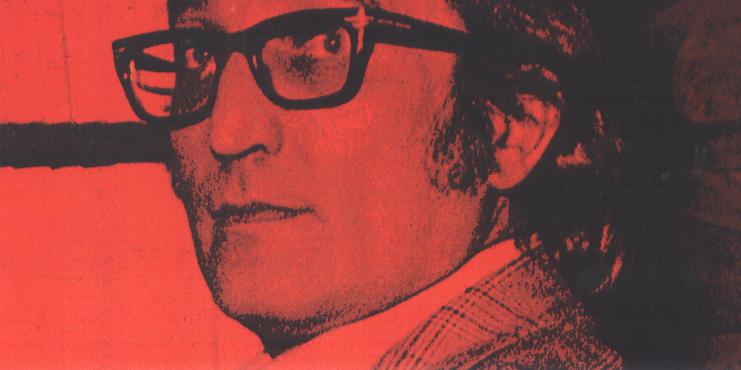
BASCO (EUSKARA) / BASQUE (EUSKARA) 1
Versione basca completa di Gabriel Aresti Segurola
Complete Basque version by Gabriel Aresti Segurola
1971
La questione della versione basca dell’Internazionale è complessa. E’ attribuita al poeta Gabriel Aresti Segurola (1933-1975); risale certamente al 1971, ma sono stati sollevati alcuni dubbi a proposito della paternità di Gabriel Aresti. Questo, in particolare, a causa di alcuni termini arcaici e/o di difficile comprensione (come, ad esempio), indazu albiristea; questo ha fatto sì che siano state richieste traduzioni alternative (ma, come è noto, il linguaggio di molte traduzioni e versioni dell’Internazionale è spesso solenne e arcaico). E’ sicuramente possibile che Gabriel Aresti abbia intenzionalmente tenuto un simile linguaggio nella sua versione, quasi obbedendo alla tradizione.
Nel 1971, Gabriel Aresti tradusse in realtà il testo due volte.... (Continues)
Versione basca completa di Gabriel Aresti Segurola
Complete Basque version by Gabriel Aresti Segurola
1971
La questione della versione basca dell’Internazionale è complessa. E’ attribuita al poeta Gabriel Aresti Segurola (1933-1975); risale certamente al 1971, ma sono stati sollevati alcuni dubbi a proposito della paternità di Gabriel Aresti. Questo, in particolare, a causa di alcuni termini arcaici e/o di difficile comprensione (come, ad esempio), indazu albiristea; questo ha fatto sì che siano state richieste traduzioni alternative (ma, come è noto, il linguaggio di molte traduzioni e versioni dell’Internazionale è spesso solenne e arcaico). E’ sicuramente possibile che Gabriel Aresti abbia intenzionalmente tenuto un simile linguaggio nella sua versione, quasi obbedendo alla tradizione.
Nel 1971, Gabriel Aresti tradusse in realtà il testo due volte.... (Continues)
Internazionala
(Continues)
(Continues)
GALEGO (GALIZIANO) / GALICIAN
L'Internazionale in galego cantata in chiesa ai funerali del comunista, dalla serie televisiva "Padre Casares" della TVG, la TV della Galizia.
The Internationale in Galician (galego) sung in a church on a communist's burial ceremony, from the TV serial "Padre Casares" of TVG (Galician Television).
La versione in lingua galega (galiziana). E' completa e aderente alla versione spagnola comunista.
Standard Galician (Galego) version. It is complete and suits well the Spanish communist version.
A Internacional (L'Internationale en francés) é a máis famosa canción socialista, adoptada tamén polos anarquistas e comunistas, unha das cancións máis coñecidas internacionalmente, adeais do himno dos traballadores de todo o mundo.
A letra orixinal foi escrita en francés por Eugène Pottier en 1870, e publicada dentro da súa obra Cantos Revolucionarios. Pierre Degeyter... (Continues)
L'Internazionale in galego cantata in chiesa ai funerali del comunista, dalla serie televisiva "Padre Casares" della TVG, la TV della Galizia.
The Internationale in Galician (galego) sung in a church on a communist's burial ceremony, from the TV serial "Padre Casares" of TVG (Galician Television).
La versione in lingua galega (galiziana). E' completa e aderente alla versione spagnola comunista.
Standard Galician (Galego) version. It is complete and suits well the Spanish communist version.
A Internacional (L'Internationale en francés) é a máis famosa canción socialista, adoptada tamén polos anarquistas e comunistas, unha das cancións máis coñecidas internacionalmente, adeais do himno dos traballadores de todo o mundo.
A letra orixinal foi escrita en francés por Eugène Pottier en 1870, e publicada dentro da súa obra Cantos Revolucionarios. Pierre Degeyter... (Continues)
A INTERNACIONAL
(Continues)
(Continues)
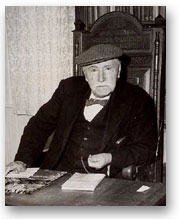
GALLESE (CIMRICO) / WELSH (CYMRAEG)
La versione in lingua gallese (cimrica) della prima strofa e del ritornello. E' opera di T.E. Nicholas "Niclas y Glais" (1878-1971).
The standard Welsh version by T.E. Nicholas (first verse and refrain.
Yr Internationale neu Yr Undeb Rhyngwladol (L'Internationale yn Ffrangeg) yw'r gân sosialaidd enwocaf, ac un o ganeuon enwocaf y byd. Ysgrifennodd Eugène Pottier (1816–1887) eiriau'r anthem ym 1871, ac ym 1888 cyfansoddodd Pierre Degeyter (1848–1932) y dôn. (Y dôn ar chyfer yn wreiddiol oedd La Marseillaise.) Mae hi'n cael ei chanu'n dradoddiadol gyda'r llaw dde yn ddwrn caeëdig.
Mewn llawer o wledydd ewropeaidd, mae'r Internationale yn cael ei chanu gan bleidiau cymdeithasol democrataidd a chomiwnyddol ill dau.
Wicipedia yng Nghymraeg
T. E. Nicholas (1878-1971), or 'Niclas y Glais' as he was called, was a founder member of the Communist Party in... (Continues)
La versione in lingua gallese (cimrica) della prima strofa e del ritornello. E' opera di T.E. Nicholas "Niclas y Glais" (1878-1971).
The standard Welsh version by T.E. Nicholas (first verse and refrain.
Yr Internationale neu Yr Undeb Rhyngwladol (L'Internationale yn Ffrangeg) yw'r gân sosialaidd enwocaf, ac un o ganeuon enwocaf y byd. Ysgrifennodd Eugène Pottier (1816–1887) eiriau'r anthem ym 1871, ac ym 1888 cyfansoddodd Pierre Degeyter (1848–1932) y dôn. (Y dôn ar chyfer yn wreiddiol oedd La Marseillaise.) Mae hi'n cael ei chanu'n dradoddiadol gyda'r llaw dde yn ddwrn caeëdig.
Mewn llawer o wledydd ewropeaidd, mae'r Internationale yn cael ei chanu gan bleidiau cymdeithasol democrataidd a chomiwnyddol ill dau.
Wicipedia yng Nghymraeg
T. E. Nicholas (1878-1971), or 'Niclas y Glais' as he was called, was a founder member of the Communist Party in... (Continues)
YR UNDEB RHYNGWLADOL
(Continues)
(Continues)
Contributed by Riccardo Venturi 2005/6/8 - 02:20
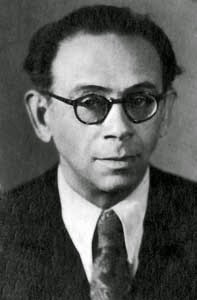
YIDDISH / YIDDISH
La versione standard in lingua Yiddish.
Standard Yiddish version.
La versione risale al 1938 e proviene dall'Unione Sovietica: è opera del prominente folklorista e etnomusicologo Moisei Beregovsky (1892-1961) e di Yitsik Peper (fonte).
The Yiddish version dates 1938 and originated in the USSR: it was composed by the renowned Jewish folklorist and ethnomusicologist Moisei Beregovsky (1892-1961) and Yitsik Peper (source).
"Moisei Iakovlevich Beregovsky (Russian: Моисей Яковлевич Береговский) (1892 – 1961) (the Hebrew first name is משה Moshe-for Moses, surname Beregovski or Beregovskii,in Yiddish בערעגאווסקי), was a Soviet era (currently split between the Russian and Ukrainian) Jewish folklorist and ethnomusicologist. He has been called the "foremost ethnomusicologist of Eastern European Jewry".[1] His research gathered melodies and words of Yiddish folk songs, wordless... (Continues)
La versione standard in lingua Yiddish.
Standard Yiddish version.
La versione risale al 1938 e proviene dall'Unione Sovietica: è opera del prominente folklorista e etnomusicologo Moisei Beregovsky (1892-1961) e di Yitsik Peper (fonte).
The Yiddish version dates 1938 and originated in the USSR: it was composed by the renowned Jewish folklorist and ethnomusicologist Moisei Beregovsky (1892-1961) and Yitsik Peper (source).
"Moisei Iakovlevich Beregovsky (Russian: Моисей Яковлевич Береговский) (1892 – 1961) (the Hebrew first name is משה Moshe-for Moses, surname Beregovski or Beregovskii,in Yiddish בערעגאווסקי), was a Soviet era (currently split between the Russian and Ukrainian) Jewish folklorist and ethnomusicologist. He has been called the "foremost ethnomusicologist of Eastern European Jewry".[1] His research gathered melodies and words of Yiddish folk songs, wordless... (Continues)
די אינטערנאַציאָנאַל
(Continues)
(Continues)
Contributed by Riccardo Venturi 2005/6/8 - 02:22
ESPERANTO [1] / ESPERANTO [1]
La versione standard in esperanto. E' completa e aderente all'originale francese.
E' opera dell'anarchico ucraino J. Zilberfarb, membro della Sennacieca Asocio Tutmonda (Associazione Mondiale degli Apolidi), dal cui sito è ripresa la seguente introduzione al canto.
The standard Esperanto version by the Ukrainian anarchist J.Zilberfarb, also a member of the Sennacieca Asocio Tutmonda (World Union of Apolides), from whose site we reproduce the following introduction to the song.
La Internacio
La himno de la laboristaro en la tuta mondo.
La Internacio estas himno de la tutmonda laboristaro. Ĝian tekston verkis Eŭgeno Pottier, ĝian muzikon komponis Petro Degeyter. Eŭgeno Pottier, franca teksaĵ-laboristo kaj proleta poeto, naskiĝis en 1816 en Parizo. Jam en sia juna aĝo li aliĝis al la laborista movado, kaj ĝis la fino de sia vivo restis poeto de la franca... (Continues)
La versione standard in esperanto. E' completa e aderente all'originale francese.
E' opera dell'anarchico ucraino J. Zilberfarb, membro della Sennacieca Asocio Tutmonda (Associazione Mondiale degli Apolidi), dal cui sito è ripresa la seguente introduzione al canto.
The standard Esperanto version by the Ukrainian anarchist J.Zilberfarb, also a member of the Sennacieca Asocio Tutmonda (World Union of Apolides), from whose site we reproduce the following introduction to the song.
La Internacio
La himno de la laboristaro en la tuta mondo.
La Internacio estas himno de la tutmonda laboristaro. Ĝian tekston verkis Eŭgeno Pottier, ĝian muzikon komponis Petro Degeyter. Eŭgeno Pottier, franca teksaĵ-laboristo kaj proleta poeto, naskiĝis en 1816 en Parizo. Jam en sia juna aĝo li aliĝis al la laborista movado, kaj ĝis la fino de sia vivo restis poeto de la franca... (Continues)
LA INTERNACIO
(Continues)
(Continues)
Contributed by Riccardo Venturi 2005/6/8 - 02:26
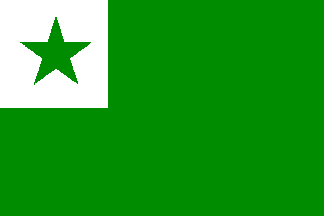
ESPERANTO [2] / ESPERANTO [2]
Ulteriore versione in esperanto. L'autore è sconosciuto; si tratta, come specificato in eo.wikipedia, di una anarkiista versio.
Alternative Esperanto version. The author is unknown; as specified in eo.wikipedia, it is an anarkiista versio.
Ulteriore versione in esperanto. L'autore è sconosciuto; si tratta, come specificato in eo.wikipedia, di una anarkiista versio.
Alternative Esperanto version. The author is unknown; as specified in eo.wikipedia, it is an anarkiista versio.
LA INTERNACIO
(Continues)
(Continues)
TURCO [1] / TURKISH [1]
La versione standard in lingua turca.
Standard (Turkey) Turkish version
Sosyalist işçi hareketinin mücadele marşı “ENTERNASYONAL”, 135. yıl önce, Haziran 1871’de, Paris komünarı Eugéne POTTIER tarafından yazıldı. 1888’de PIERRE CHRETIEN DEGEYETER tarafından bestelendi.
Eugéne Pottier’in ölümünün 25. yıldönümü dolayısıyla Lenin’in Pravda’nın 2. sayısında (Ocak 1913) yayınlanan yazısını okurlarımıza sunuyoruz.
Ünlü işçi türküsü Enternasyonal’in (“uyan artık uykudan uyan, uyan esirler dünyası”) yazarı işçi-şair Eugéne Pottier öleli, Kasım 1912’de, tam 25 yıl oldu.
Bu türkü bütün Avrupa dillerine çevrilmiştir. Hem sadece Avrupa dillerine değil, bulunduğu ülke neresi olursa olsun, yazgı nereye sürüklerse sürüklesin, ülkelerinden uzaklarda dilini bilmediği bir yerde ne kadar yabancılık duyarsa duysun, bilinçli bir işçi ünlü “Enternasyonal” türküsüyle birçok arkadaş,... (Continues)
La versione standard in lingua turca.
Standard (Turkey) Turkish version
Sosyalist işçi hareketinin mücadele marşı “ENTERNASYONAL”, 135. yıl önce, Haziran 1871’de, Paris komünarı Eugéne POTTIER tarafından yazıldı. 1888’de PIERRE CHRETIEN DEGEYETER tarafından bestelendi.
Eugéne Pottier’in ölümünün 25. yıldönümü dolayısıyla Lenin’in Pravda’nın 2. sayısında (Ocak 1913) yayınlanan yazısını okurlarımıza sunuyoruz.
Ünlü işçi türküsü Enternasyonal’in (“uyan artık uykudan uyan, uyan esirler dünyası”) yazarı işçi-şair Eugéne Pottier öleli, Kasım 1912’de, tam 25 yıl oldu.
Bu türkü bütün Avrupa dillerine çevrilmiştir. Hem sadece Avrupa dillerine değil, bulunduğu ülke neresi olursa olsun, yazgı nereye sürüklerse sürüklesin, ülkelerinden uzaklarda dilini bilmediği bir yerde ne kadar yabancılık duyarsa duysun, bilinçli bir işçi ünlü “Enternasyonal” türküsüyle birçok arkadaş,... (Continues)
ENTERNASYONAL
(Continues)
(Continues)
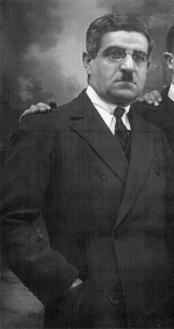
ARMENO [Occidentale, o Armeno letterario] 1
ARMENIAN [West, or Literary Armenian] 1
Versione di Shavarsh Misakian
Version by Shavarsh Misakian
~ 1940
La versione in lingua armena occidentale (l'armeno letterario) di Shavarsh Misakian. Risale a circa il 1940. Shavarsh Misakian (in armeno: Շաւարշ Միսաքեան , in francese: Chavarche Missakian, 1884-1957) è stato un giornalista e intellettuale armeno noto per avere fondato e diretto dal 1925 alla sua morte la rivista Haratch, a Parigi.
The standard version in Western Armenian (literary Armenian), translated by Shavarsh Misakian and dating back to around 1940. Shavarsh Misakian (Armenian: Շաւարշ Միսաքեան, French: Chavarche Missakian, 1884–1957) was an Armenian journalist and intellectual known for founding and directing the magazine Haratch in Paris from 1925 until his death.
L'immagine è ripresa da Chants de Lutte. Il testo stampabile (parziale)... (Continues)
ARMENIAN [West, or Literary Armenian] 1
Versione di Shavarsh Misakian
Version by Shavarsh Misakian
~ 1940
La versione in lingua armena occidentale (l'armeno letterario) di Shavarsh Misakian. Risale a circa il 1940. Shavarsh Misakian (in armeno: Շաւարշ Միսաքեան , in francese: Chavarche Missakian, 1884-1957) è stato un giornalista e intellettuale armeno noto per avere fondato e diretto dal 1925 alla sua morte la rivista Haratch, a Parigi.
The standard version in Western Armenian (literary Armenian), translated by Shavarsh Misakian and dating back to around 1940. Shavarsh Misakian (Armenian: Շաւարշ Միսաքեան, French: Chavarche Missakian, 1884–1957) was an Armenian journalist and intellectual known for founding and directing the magazine Haratch in Paris from 1925 until his death.
L'immagine è ripresa da Chants de Lutte. Il testo stampabile (parziale)... (Continues)
ԱՇԽԱՏԱՄԱՐՏԻ ԵՐԳԸ [1]
(Continues)
(Continues)
Contributed by Riccardo Venturi 2005/6/8 - 02:31

IDO / IDO [1]
Versione in lingua Ido.
L'ido è una versione riformata (semplificata) dell'esperanto.
Standard Ido version.
Ido is a reformed (and simplified) form of Esperanto.
L'ido è una versione riformata (semplificata) dell'esperanto.
Standard Ido version.
Ido is a reformed (and simplified) form of Esperanto.
LA INTERNACIONALO
(Continues)
(Continues)
INDONESIANO [1] / INDONESIAN [1]
La versione standard in lingua indonesiana di A.Yuwinu fu pubblicata per la prima volta il 31 maggio 1970; con lievissime modifiche può essere adattata anche alla lingua malese, da cui l'indonesiano è del resto derivato. La traduzione sembra essere basata su quelle cinesi e russe; originariamente redatta e pubblicata nella vecchia ortografia, è stata in seguito adattata all'ortografia riformata dell'indonesiano entrata in vigore il 17 agosto 1972 (la presente versione è nell'attuale ortografia ufficiale).
The Indonesian standard version by A. Yuwinu was published for the first time on May 31, 1970; it can be adapted to the very close Malay language, from which Indonesian is derived. The version appears to be based on the lyrics from Chinese and Russian, and was originally written and published in the old Indonesian spelling. It was later adapted to the... (Continues)
La versione standard in lingua indonesiana di A.Yuwinu fu pubblicata per la prima volta il 31 maggio 1970; con lievissime modifiche può essere adattata anche alla lingua malese, da cui l'indonesiano è del resto derivato. La traduzione sembra essere basata su quelle cinesi e russe; originariamente redatta e pubblicata nella vecchia ortografia, è stata in seguito adattata all'ortografia riformata dell'indonesiano entrata in vigore il 17 agosto 1972 (la presente versione è nell'attuale ortografia ufficiale).
The Indonesian standard version by A. Yuwinu was published for the first time on May 31, 1970; it can be adapted to the very close Malay language, from which Indonesian is derived. The version appears to be based on the lyrics from Chinese and Russian, and was originally written and published in the old Indonesian spelling. It was later adapted to the... (Continues)
INTERNASIONALE
(Continues)
(Continues)
Contributed by Riccardo Venturi 2005/6/8 - 02:34
PERSIANO MODERNO [1] / MODERN PERSIAN [1]
La versione standard in lingua persiana moderna (fârsi).
Standard Modern Persian (Fârsi) version.
سرود انترناسیونال سرود جهانی و همبستگی طبقه کارگر در سراسر جهان است. این سرود در سال 1870 اوژن پوتیه (1848–1932) به زبان فرانسه سروده شده است. بعدها این سرود به بیشتر زبانهای دنیا ترجمه شد.
سرود انترناسیونال به طور اخص در میان کمونیستها و همچنین دیگر جریانات چپ و کارگری رایچ است.
متن سرود به فارسی
در ایران سرود انترناسیونال چندین بار به زبان فارسی ترجمه شده است. برای اولین بار لاهوتی, شاعر و ترانه سرای ایرانی که از نزدیکان حزب توده ایران بود, این ترانه را به صورت فارسی ترجمه کرد و به صورت ترانه درآورد و همان نسخهٔ او تنها با تفاوت های ناچیز در بعضی نسخه ها, سرود رسمی انترناسیونال به زبان فارسی است و توسط احزاب و خوانندههای مختلف بارها اجرا شده و تقریبا در تمام مراسم ها و اعتراضات و تظاهرات ایرانیان در داخل و خارج کشور, خوانده میشود.
این ترجمه به این صورت است:(تفاوت های جزئی در نسخههای مختلف در پرانتز ذکر شده است)
Fârsi Wikipedia
La versione standard in lingua persiana moderna (fârsi).
Standard Modern Persian (Fârsi) version.
سرود انترناسیونال سرود جهانی و همبستگی طبقه کارگر در سراسر جهان است. این سرود در سال 1870 اوژن پوتیه (1848–1932) به زبان فرانسه سروده شده است. بعدها این سرود به بیشتر زبانهای دنیا ترجمه شد.
سرود انترناسیونال به طور اخص در میان کمونیستها و همچنین دیگر جریانات چپ و کارگری رایچ است.
متن سرود به فارسی
در ایران سرود انترناسیونال چندین بار به زبان فارسی ترجمه شده است. برای اولین بار لاهوتی, شاعر و ترانه سرای ایرانی که از نزدیکان حزب توده ایران بود, این ترانه را به صورت فارسی ترجمه کرد و به صورت ترانه درآورد و همان نسخهٔ او تنها با تفاوت های ناچیز در بعضی نسخه ها, سرود رسمی انترناسیونال به زبان فارسی است و توسط احزاب و خوانندههای مختلف بارها اجرا شده و تقریبا در تمام مراسم ها و اعتراضات و تظاهرات ایرانیان در داخل و خارج کشور, خوانده میشود.
این ترجمه به این صورت است:(تفاوت های جزئی در نسخههای مختلف در پرانتز ذکر شده است)
Fârsi Wikipedia
سرود انترناسیونال
(Continues)
(Continues)
ZULU / ZULU
La versione in lingua zulu della prima strofa e del ritornello.
Zulu version of the first stanza and refrain.
La versione in lingua zulu della prima strofa e del ritornello.
Zulu version of the first stanza and refrain.
I-INTERNATIONALE
(Continues)
(Continues)
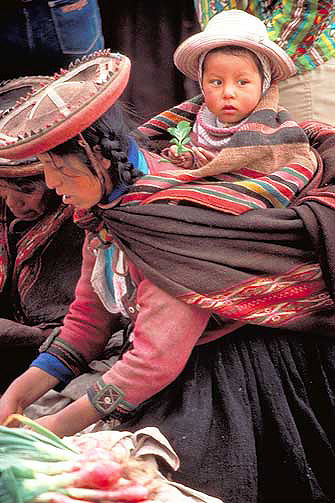
QUECHUA [RUNA SIMI] / QUECHUA [RUNA SIMI]
Una versione in lingua quechua o runa simi.
A version into Quechua or (runa simi).
Une version en langue quechua, ou runa simi.
A version into Quechua or (runa simi).
Une version en langue quechua, ou runa simi.
INTERNASYONAL TAKI
(Continues)
(Continues)
TAGALOG (FILIPPINO) [1] / TAGALOG (PILIPINO) [1]
La versione filippina più diffusa dell'Internazionale è senz'altro quella redatta nel 1969 a cura del Partito Comunista delle Filippine (Communist Party of the Philippines, CPP). Rispetto alle altre versioni (q.v.) presenta la caratteristica di essere maggiormente basata sull'originale francese di Eugène Pottier: cantata in due strofe più il ritornello, si tratta praticamente della traduzione del testo originale. Un'altra caratteristica della versione è quella di essere redatta in tagalog classico, che presenta leggere differenze con la versione attuale del Filippino comune (Pilipino).
The most widely known Pilipino version of the Internationale is no doubt the version prepared in 1969 by the Communist Party of the Philippines (CPP). In comparison with other versions (q.v.), it is mostly based on Eugène Pottier's original French lyrics... (Continues)
La versione filippina più diffusa dell'Internazionale è senz'altro quella redatta nel 1969 a cura del Partito Comunista delle Filippine (Communist Party of the Philippines, CPP). Rispetto alle altre versioni (q.v.) presenta la caratteristica di essere maggiormente basata sull'originale francese di Eugène Pottier: cantata in due strofe più il ritornello, si tratta praticamente della traduzione del testo originale. Un'altra caratteristica della versione è quella di essere redatta in tagalog classico, che presenta leggere differenze con la versione attuale del Filippino comune (Pilipino).
The most widely known Pilipino version of the Internationale is no doubt the version prepared in 1969 by the Communist Party of the Philippines (CPP). In comparison with other versions (q.v.), it is mostly based on Eugène Pottier's original French lyrics... (Continues)
INTERNASYONAL
(Continues)
(Continues)
Contributed by Riccardo Venturi 2005/6/8 - 02:43
CARELIANO [1] / KARELIAN [1]
La versione standard in lingua careliana. Il testo completo è stato reperito alla seguente pagina:
Standard Karelian version. The complete lyrics are available at the following webpage.
Enžimäzet harpavkšet. Stihat, virret, očerkat i šanelennat. Lihoslavl'a: Mosoblispolkoman izdatel'stvan karielazin otdelenja, 1932, 11-12.
(Parrebbe che la versione risalga al 1932 e sia stata pubblicata -o forse sia opera- di un certo Lihoslavl')
La versione standard in lingua careliana. Il testo completo è stato reperito alla seguente pagina:
Standard Karelian version. The complete lyrics are available at the following webpage.
Enžimäzet harpavkšet. Stihat, virret, očerkat i šanelennat. Lihoslavl'a: Mosoblispolkoman izdatel'stvan karielazin otdelenja, 1932, 11-12.
(Parrebbe che la versione risalga al 1932 e sia stata pubblicata -o forse sia opera- di un certo Lihoslavl')
INTERNACIONALAH
(Continues)
(Continues)

MAORI / MAORI 1
Te Hunga Mahi - La versione in lingua maori
Te Hunga Mahi - The Internationale in the Maori language
La versione in lingua maori della prima strofa e del ritornello.
Maori version of the first stanza and refrain.
Te Hunga Mahi - La versione in lingua maori
Te Hunga Mahi - The Internationale in the Maori language
La versione in lingua maori della prima strofa e del ritornello.
Maori version of the first stanza and refrain.
Te Hunga Mahi
(Continues)
(Continues)
Contributed by Riccardo Venturi 2005/6/8 - 02:50
AVVERTENZA
A partire dalla versione che segue, tutte le numerosissime versioni complete o parziali dell'Internazionale nelle varie lingue saranno date in rigoroso ordine alfabetico per lingua.
NOTICE
Starting from the following version, all versions of the Internationale in the various languages will be displayed in strictly alphabetical order by language.
A partire dalla versione che segue, tutte le numerosissime versioni complete o parziali dell'Internazionale nelle varie lingue saranno date in rigoroso ordine alfabetico per lingua.
NOTICE
Starting from the following version, all versions of the Internationale in the various languages will be displayed in strictly alphabetical order by language.
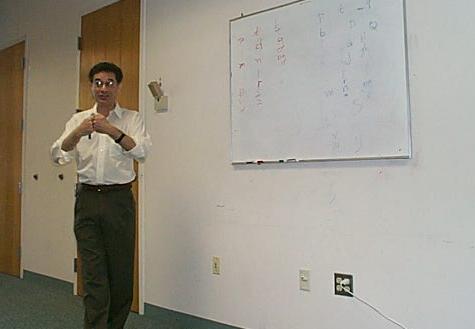
KLINGON / KLINGON [1]
Non c'è dubbio: si tratta della versione (parziale: la prima strofa e del ritornello) in assoluto più incredibile dell'Internazionale in ogni lingua. In questo caso la potremmo chiamare tranquillamente Intersiderale. Il Klingon, come tutti (o molti) sanno, è la lingua creata oltre trent'anni fa dal linguista Marc Okrand per la celeberrima serie di telefilm Star Trek (e per il relativo film) dei Paramount Studios. E', insomma, la lingua degli Extraterrestri. E' regolata dal Klingon Language Institute.Si veda anche questa pagina, dove si parla anche della versione klingon dell'Internazionale ("Inno del Partito Socialista Klingon"). La versione "classica" in Klingon è opera, come si evince da questa pagina, di challoD; sulla musica originale di Degeyter, è accompagnata da una versione inglese letterale di SkyMan (presente sulla stessa pagina) dalla quale si evince il... (Continues)
Non c'è dubbio: si tratta della versione (parziale: la prima strofa e del ritornello) in assoluto più incredibile dell'Internazionale in ogni lingua. In questo caso la potremmo chiamare tranquillamente Intersiderale. Il Klingon, come tutti (o molti) sanno, è la lingua creata oltre trent'anni fa dal linguista Marc Okrand per la celeberrima serie di telefilm Star Trek (e per il relativo film) dei Paramount Studios. E', insomma, la lingua degli Extraterrestri. E' regolata dal Klingon Language Institute.Si veda anche questa pagina, dove si parla anche della versione klingon dell'Internazionale ("Inno del Partito Socialista Klingon"). La versione "classica" in Klingon è opera, come si evince da questa pagina, di challoD; sulla musica originale di Degeyter, è accompagnata da una versione inglese letterale di SkyMan (presente sulla stessa pagina) dalla quale si evince il... (Continues)
Daw'bom
(Continues)
(Continues)
NEERLANDESE (OLANDESE-FIAMMINGO) [2] / DUTCH (FLEMISH) [2]
La versione standard neerlandese (fiamminga) in uso in Belgio. Differisce leggermente da quella in uso nei Paesi Bassi.
The standard Dutch (Flemish) version as sung in Belgium. It differs slightly from that sung in the Netherlands.
La versione standard neerlandese (fiamminga) in uso in Belgio. Differisce leggermente da quella in uso nei Paesi Bassi.
The standard Dutch (Flemish) version as sung in Belgium. It differs slightly from that sung in the Netherlands.
DE INTERNATIONALE
(Continues)
(Continues)
CURDO [1] / KURDISH [1]
La versione standard in lingua curda in caratteri latini, di Tercemey Rebwar.
Da Questo file .pdf.
The standard Kurdish version by Tercemey Rebwar, in Latin characters
From This .pdf file.
La versione standard in lingua curda in caratteri latini, di Tercemey Rebwar.
Da Questo file .pdf.
The standard Kurdish version by Tercemey Rebwar, in Latin characters
From This .pdf file.
ANTIRNASYONAL
(Continues)
(Continues)

GRONINGESE / GRONINGEN DUTCH
Versione in neerlandese di Groningen di H. e G. van der Veen
Version in Groningen Dutch by H. and G. van der Veen
2002
Versione in neerlandese di Groningen di H. e G. van der Veen
Version in Groningen Dutch by H. and G. van der Veen
2002
Versione nel dialetto di Groningen (Paesi Bassi) di H. e G. Van der Veen (2002) eseguita in occasione delle elezioni municipali.
The following version in the Groningen Dutch dialect by H. and G. Van der Veen was written on the occasion of the local (municipal) elections of 2002.
The following version in the Groningen Dutch dialect by H. and G. Van der Veen was written on the occasion of the local (municipal) elections of 2002.
DE INTERNASJONOALE
(Continues)
(Continues)
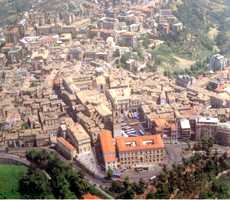
CHIETINO (TEATINO) / CHIETI DIALECT (ITALIAN) [1]
Versione nel dialetto di Chieti di Domenico Chillemi.
La versione è stata eseguita da Domenico ("Nico") Chillemi a casa di Riccardo Venturi nel giugno del 1999. La versione si basa sulla versione italiana storica di Bergeret.
A version in the Chieti Italian dialect by Domenico Chillemi.
The version has been prepared by Domenico ("Nico") Chillemi at Riccardo Venturi's home in Juny 1999. The version is based on the historical Italian version by Bergeret.
La versione è stata eseguita da Domenico ("Nico") Chillemi a casa di Riccardo Venturi nel giugno del 1999. La versione si basa sulla versione italiana storica di Bergeret.
A version in the Chieti Italian dialect by Domenico Chillemi.
The version has been prepared by Domenico ("Nico") Chillemi at Riccardo Venturi's home in Juny 1999. The version is based on the historical Italian version by Bergeret.
LU ‘NTËRNAZZIUNALË
(Continues)
(Continues)
BRIANZOLO / BRIANZA DIALECT (ITALIAN)
Versione nel dialetto brianzolo di Cremnago di Vittorio Mario Caluisi ("Joey de Maio")
[2001]
A version in the Brianza dialect (Lombardy, Italy) by Vittorio Mario Caluisi ("Joey de Maio")
[2001]
Versione nel dialetto brianzolo di Cremnago di Vittorio Mario Caluisi ("Joey de Maio")
[2001]
A version in the Brianza dialect (Lombardy, Italy) by Vittorio Mario Caluisi ("Joey de Maio")
[2001]
L'INTERNAZIUNAL
(Continues)
(Continues)
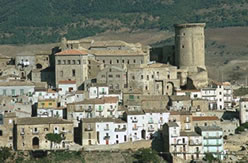
LUCANO (POTENZA-TRICARICO) / BASILICATA DIALECT (ITALIAN)
Versione lucana (Potenza-Tricarico) di Maria Teresa Eufemia [*]. Si basa sulla versione italiana classica di Bergeret.
A version in the dialect of Lucania (Potenza-Tricarico) by Maria Teresa Eufemia [*]. It is based on the classic Italian version by Bergeret.
[*] Si ringrazia Giorgio Fontanelli per aver fatto pervenire la versione - Thanks to Giorgio Fontanelli for providing this version.
Versione lucana (Potenza-Tricarico) di Maria Teresa Eufemia [*]. Si basa sulla versione italiana classica di Bergeret.
A version in the dialect of Lucania (Potenza-Tricarico) by Maria Teresa Eufemia [*]. It is based on the classic Italian version by Bergeret.
[*] Si ringrazia Giorgio Fontanelli per aver fatto pervenire la versione - Thanks to Giorgio Fontanelli for providing this version.
L'INTERNAZIONAL
(Continues)
(Continues)
BULGARO / BULGARIAN
Versione standard in lingua bulgara. Il testo è ripreso da questa pagina
Complete standard Bulgarian version. The lyrics are available at this page.
La versione bulgara dell'Internazionale è molto antica: risale al 1897. Fu scritta da un giovane maestro elementare, Nikola Michov, poi divenuto accademico, docente di biblioteconomia presso l'accademia Stopanska di Svištov nonché un importante economista e statistico. All'epoca, Nikola Michov era maestro nel villaggio di Draganovo; fu suo fratello Michail, studente in Francia, che gli mandò il testo originale e la musica.
The Bulgarian version of the Internationale is very old: as a matter of fact, it dates from 1897. It was written by a young teacher, Nikola Michov, who was later to become an important academician and economist, and professor of library science in the Stopanska academy of Svishtov. At that time,... (Continues)
Versione standard in lingua bulgara. Il testo è ripreso da questa pagina
Complete standard Bulgarian version. The lyrics are available at this page.
La versione bulgara dell'Internazionale è molto antica: risale al 1897. Fu scritta da un giovane maestro elementare, Nikola Michov, poi divenuto accademico, docente di biblioteconomia presso l'accademia Stopanska di Svištov nonché un importante economista e statistico. All'epoca, Nikola Michov era maestro nel villaggio di Draganovo; fu suo fratello Michail, studente in Francia, che gli mandò il testo originale e la musica.
The Bulgarian version of the Internationale is very old: as a matter of fact, it dates from 1897. It was written by a young teacher, Nikola Michov, who was later to become an important academician and economist, and professor of library science in the Stopanska academy of Svishtov. At that time,... (Continues)
ИНТЕРНАЦИОНАЛЪT
(Continues)
(Continues)
BULGARO / BULGARIAN
Trascrizione in caratteri latini della precedente versione bulgara.
Romanized Bulgarian version.
Romanized Bulgarian version.
INTERNACIONALĂT
(Continues)
(Continues)
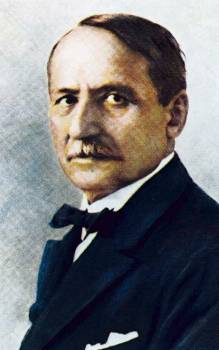
GRECO [1] / GREEK [1]
La versione standard completa in lingua greca fornita originariamente da Giuseppina di Lillo. L'autore è Rigas Golfis (Ρήγας Γκόλφης), che eseguì la traduzione nel 1909. Rimasta fino ad oggi [10.9.2016] con le sole due strofe (la 1a e la 2a) generalmente cantate e col ritornello, è stata integrata con le rimanenti strofe della versione originale di Golfis reperite sul sito degli Apolitistoi, gruppo anarco-punk greco che la ha interpretata.
In greco politonico / In polytonic Greek / Πολυτονικὀ
The complete standard Greek version originally contributed by Giuseppina di Lillo. Its author is Rigas Golfis (Ρήγας Γκόλφης), who made the translation in 1909. The version has included until today [10.9.2016] only the first two stanzas generally sung and the chorus, and has been integrated with the remaining stanzas from Golfis' original version to be found in Apolitistoi's... (Continues)
La versione standard completa in lingua greca fornita originariamente da Giuseppina di Lillo. L'autore è Rigas Golfis (Ρήγας Γκόλφης), che eseguì la traduzione nel 1909. Rimasta fino ad oggi [10.9.2016] con le sole due strofe (la 1a e la 2a) generalmente cantate e col ritornello, è stata integrata con le rimanenti strofe della versione originale di Golfis reperite sul sito degli Apolitistoi, gruppo anarco-punk greco che la ha interpretata.
In greco politonico / In polytonic Greek / Πολυτονικὀ
The complete standard Greek version originally contributed by Giuseppina di Lillo. Its author is Rigas Golfis (Ρήγας Γκόλφης), who made the translation in 1909. The version has included until today [10.9.2016] only the first two stanzas generally sung and the chorus, and has been integrated with the remaining stanzas from Golfis' original version to be found in Apolitistoi's... (Continues)
H ΔIEΘNHΣ
(Continues)
(Continues)
Contributed by Riccardo Venturi - Ελληνικό Τμήμα των ΑΠΤ "Gian Piero Testa" 2005/6/8 - 14:09
GRECO / GREEK
Trascrizione semifonemica della precedente versione greca.
Semi-phonemic Romanized transcription of the foregoing Greek version.
Semi-phonemic Romanized transcription of the foregoing Greek version.
I DHJETHÑÍS
(Continues)
(Continues)
GRECO / GREEK [1 - Traslitterato / Romanized]
La trascrizione grafematica della versione greca (completa) di Rigas Golfis (1909). "Grafematica" significa esclusivamente assegnando ad ogni singolo grafema greco un corrispondente grafema in alfabeto latino (ad esempio: η = ē ; χ = ch, ecc.); chiaramente, tale trascrizione non corrisponde all'effettiva pronuncia.
A graphemic transcription of the (complete) Greek version by Rigas Golfis (1909). "Graphemic" means here a transcription where each Greek sign (grapheme) is assigned a corresponding sign in the Latin script (e.g., η = ē ; χ = ch, etc.); of course, this transcription does not reproduce the real pronunciation. [CCG/AWS Staff]
A graphemic transcription of the (complete) Greek version by Rigas Golfis (1909). "Graphemic" means here a transcription where each Greek sign (grapheme) is assigned a corresponding sign in the Latin script (e.g., η = ē ; χ = ch, etc.); of course, this transcription does not reproduce the real pronunciation. [CCG/AWS Staff]
Ē DIETHNĒ'S
(Continues)
(Continues)
Contributed by Riccardo Venturi - Ελληνικó Τμήμα των ΑΠΤ "Gian Piero Testa" 2005/6/8 - 14:18
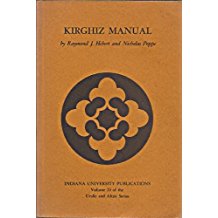
KIRGHISO / KYRGYZ
La versione kirghisa standard ripresa dagli esercizi di lettura del Kirghiz Manual di Raymond J.Hebert e Nicholas Poppe (1963, Indiana University Press, Bloomington, Indiana & Mouton & Co., The Hague, The Netherlands; pp. 69/70, Reading Selection VII). E' stata da me reperita circa trent'anni fa e trascritta sin dalla prima versione di questa pagina.
Il kirghiso è una lingua turca scritta tuttora con una versione modificata dell'alfabeto cirillico, nonostante dalla caduta dell'URSS (1991) molti abbiano proposto di tornare all'alfabeto latino con cui era stata scritta dal 1928 al 1940.
Sulla lingua kirghisa si veda questo articolo di Wikipedia.
The standard Kyrgyz version as reproduced from the reader to the Kirghiz Manual by Raymond J. Hebert and Nicholas Poppe (1963, Indiana University Press, Bloomington, Indiana and Mouton & Co., The Hague, The Netherlands;... (Continues)
La versione kirghisa standard ripresa dagli esercizi di lettura del Kirghiz Manual di Raymond J.Hebert e Nicholas Poppe (1963, Indiana University Press, Bloomington, Indiana & Mouton & Co., The Hague, The Netherlands; pp. 69/70, Reading Selection VII). E' stata da me reperita circa trent'anni fa e trascritta sin dalla prima versione di questa pagina.
Il kirghiso è una lingua turca scritta tuttora con una versione modificata dell'alfabeto cirillico, nonostante dalla caduta dell'URSS (1991) molti abbiano proposto di tornare all'alfabeto latino con cui era stata scritta dal 1928 al 1940.
Sulla lingua kirghisa si veda questo articolo di Wikipedia.
The standard Kyrgyz version as reproduced from the reader to the Kirghiz Manual by Raymond J. Hebert and Nicholas Poppe (1963, Indiana University Press, Bloomington, Indiana and Mouton & Co., The Hague, The Netherlands;... (Continues)
ИНТЕРНАЦИОНАЛ
(Continues)
(Continues)
KIRGHISO / KYRGYZ
La trascrizione in caratteri latini, basata sull'alfabeto nazionale turco.
Romanized version based on the Turkish national alphabet.
La trascrizione in caratteri latini, basata sull'alfabeto nazionale turco.
Romanized version based on the Turkish national alphabet.
INTERNACIONAL
(Continues)
(Continues)

GAELICO IRLANDESE [1] / IRISH GAELIC [1]
La versione standard di due strofe in gaelico irlandese di Máirtín Ó Cadhain. Dal Sito del Communist Party of Ireland/Páirtí Cumannach na hÉireann (Partito Comunista Irlandese). La consigliamo per la sua autentica bellezza.
Máirtín Ó Cadhain's standard two-stanza version in Irish Gaelic,
from the Official Website of the Communist Party of Ireland/Páirtí Cumannach na hÉireann. It is recommended for its real beauty.
Máirtín Ó Cadhain's standard two-stanza version in Irish Gaelic,
from the Official Website of the Communist Party of Ireland/Páirtí Cumannach na hÉireann. It is recommended for its real beauty.
AN tIDIRNAISIÚNTA
(Continues)
(Continues)
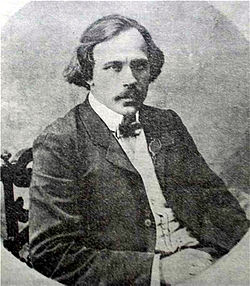
UCRAINO [1]
UKRAINIAN [1]
La versione ucraina di Mykola Kindratovyč Voronyj e Evhen Grygoruk [< 1938]
Ukrainian version by Mykola Kindratovyč Voronyj e Evhen Grygoruk [< 1938]
La storica versione in lingua ucraina di Mykola Kindratovyč Voronyj (1871-1938). Mykola Voronyj fu fatto liquidare dalla Troika NKVD nel 1938 con l'accusa di essere membro di un' “organizzazione militarista e nazionalista ucraina”; nel 1917 aveva fondato il teatro nazionale ucraino. La sua traduzione ucraina dell'Internazionale era stata citata direttamente da Vladimir Majakovskij (ma in dizione russa) nel poemetto Долг Украине.
The historic Ukrainian version by Mykola Kyndratovič Voronyj (1871-1938). Mykola Voronyj was eliminated by the so-called NKVD Troyka with accusation of being a member of an “Ukrainian militarist and nationalist organization”; he had created in 1917 the Ukrainian National Theatre. His... (Continues)
UKRAINIAN [1]
La versione ucraina di Mykola Kindratovyč Voronyj e Evhen Grygoruk [< 1938]
Ukrainian version by Mykola Kindratovyč Voronyj e Evhen Grygoruk [< 1938]
La storica versione in lingua ucraina di Mykola Kindratovyč Voronyj (1871-1938). Mykola Voronyj fu fatto liquidare dalla Troika NKVD nel 1938 con l'accusa di essere membro di un' “organizzazione militarista e nazionalista ucraina”; nel 1917 aveva fondato il teatro nazionale ucraino. La sua traduzione ucraina dell'Internazionale era stata citata direttamente da Vladimir Majakovskij (ma in dizione russa) nel poemetto Долг Украине.
The historic Ukrainian version by Mykola Kyndratovič Voronyj (1871-1938). Mykola Voronyj was eliminated by the so-called NKVD Troyka with accusation of being a member of an “Ukrainian militarist and nationalist organization”; he had created in 1917 the Ukrainian National Theatre. His... (Continues)
IНТEPНAЦІOНАЛ
(Continues)
(Continues)
Contributed by Riccardo Venturi 2005/6/8 - 21:58
UCRAINO [1A] / UKRAINIAN [1A]
La trascrizione in caratteri latini della precedente versione ucraina.
Romanized Ukrainian version.
Romanized Ukrainian version.
INTERNACIONAL
(Continues)
(Continues)
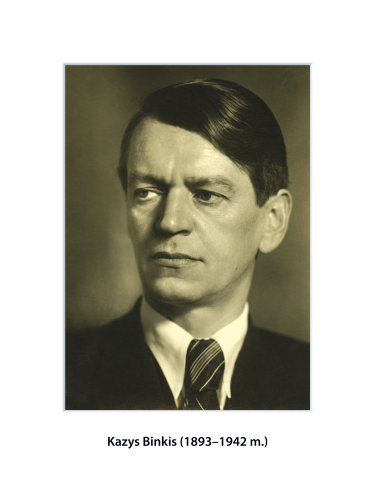
LITUANO / LITHUANIAN
La versione standard lituana. Il testo proviene dalla edizione lituana di Wikipedia. E' opera del poeta Kazys Binkis (1893-1942). Binkis è tra i principali poeti lituani del '900; fu trucidato dai nazisti assieme alla moglie Sofia durante l'occupazione tedesca, in quanto nascondeva degli ebrei a casa sua. E' commemorato allo Yad Vashem di Gerusalemme con un albero piantato nei viali dei "Giusti delle Nazioni".
Standard Lithuanian version. Lyrics are reproduced from lt.wikipedia. The Lithuanian version was written by the poet Kazys Binkis (1893-1942). Binkis stands among the greatest Lithuanian poets of the 20th century; he was killed by the Nazis together with his wife Sofia during the German occupation, as he was hiding a number of Jews in his home. He is honoured in Jerusalem Yad Vashem with a tree planted in the alleys of the "Righteous of the Nations". [CCG/AWS Staff]
La versione standard lituana. Il testo proviene dalla edizione lituana di Wikipedia. E' opera del poeta Kazys Binkis (1893-1942). Binkis è tra i principali poeti lituani del '900; fu trucidato dai nazisti assieme alla moglie Sofia durante l'occupazione tedesca, in quanto nascondeva degli ebrei a casa sua. E' commemorato allo Yad Vashem di Gerusalemme con un albero piantato nei viali dei "Giusti delle Nazioni".
Standard Lithuanian version. Lyrics are reproduced from lt.wikipedia. The Lithuanian version was written by the poet Kazys Binkis (1893-1942). Binkis stands among the greatest Lithuanian poets of the 20th century; he was killed by the Nazis together with his wife Sofia during the German occupation, as he was hiding a number of Jews in his home. He is honoured in Jerusalem Yad Vashem with a tree planted in the alleys of the "Righteous of the Nations". [CCG/AWS Staff]
INTERNACIONALAS
(Continues)
(Continues)
Contributed by Riccardo Venturi 2005/6/8 - 22:19
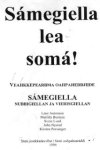
LAPPONE [SAMI] / LAPPISH [SAMI]
La versione lappone (sámegiella) della prima strofa e del refrain, di Niilas Juhani [Nils Johan] Heatta. Da questa pagina. Secondo quest'altra pagina in nynorsk, la versione lappone (sami) sarebbe stata preparata su iniziativa del Kárájoga RV (Rukses Válgalihttu), organismo del quale ignoro l'esatta consistenza. Niilas Juhani Heatta sarebbe stato un annunciatore di Sami Radio (la radio in lingua lappone). Ancor prima che cantato, il testo sarebbe stato letto un imprecisato 1° maggio a Alta, in Finlandia, da tale Heaika Skum.
Niilas Juhani [Nils Johan] Heatta's Lappish (Sami) version of the first stanza and refrain. From this page. According to this page in nynorsk, the Lappish version is supposed to have been composed by initiative of the Kárájoga RV (Rukses Válgalihttu), an organization I don't know anything about or so. Niilas Juhani Heatta is supposed... (Continues)
La versione lappone (sámegiella) della prima strofa e del refrain, di Niilas Juhani [Nils Johan] Heatta. Da questa pagina. Secondo quest'altra pagina in nynorsk, la versione lappone (sami) sarebbe stata preparata su iniziativa del Kárájoga RV (Rukses Válgalihttu), organismo del quale ignoro l'esatta consistenza. Niilas Juhani Heatta sarebbe stato un annunciatore di Sami Radio (la radio in lingua lappone). Ancor prima che cantato, il testo sarebbe stato letto un imprecisato 1° maggio a Alta, in Finlandia, da tale Heaika Skum.
Niilas Juhani [Nils Johan] Heatta's Lappish (Sami) version of the first stanza and refrain. From this page. According to this page in nynorsk, the Lappish version is supposed to have been composed by initiative of the Kárájoga RV (Rukses Válgalihttu), an organization I don't know anything about or so. Niilas Juhani Heatta is supposed... (Continues)
INTERNATIONALA
(Continues)
(Continues)
NORVEGESE /NYNORSK [3] / NORVEGESE (NYNORSK) [3]
La versione standard in Nynorsk (neo-norvegese o norvegese occidentale)[1929] di Ola Martinus Høgåsen (1900-1964). Da questa pagina.
Standard version in Nynorsk (Neo-Norwegian or Western Norwegian) by Ola Martinus Høgåsen (1900-1964) [1929]. From this page
OLA MARTINUS HØGÅSEN
Han var fødd i Grue i Solør 2.august 1900. Her voks han opp på småbruket Høgåsen, og var eldst av 10 sysken.
Frå han var liten voks han opp med segner og eventyr frå Finnskogen, og han viste tidleg at han hadde store evner.
Som 12-åring fekk han Snorre av far sin. Denne las han frå perm til perm fleire gonger. I lomma hadde han Seips visebok. Der var dikt av Aasen, Vinje, Sivle m.fl. som han lærde seg utanåt.
Han fekk lånt Ivar Aasens ordbok. Denne vart ei gullgruve for han. Interessa for dialekter og norsk folkemål vart vekt.
Han byrja så å skrive små vers.... (Continues)
La versione standard in Nynorsk (neo-norvegese o norvegese occidentale)[1929] di Ola Martinus Høgåsen (1900-1964). Da questa pagina.
Standard version in Nynorsk (Neo-Norwegian or Western Norwegian) by Ola Martinus Høgåsen (1900-1964) [1929]. From this page
OLA MARTINUS HØGÅSEN
Han var fødd i Grue i Solør 2.august 1900. Her voks han opp på småbruket Høgåsen, og var eldst av 10 sysken.
Frå han var liten voks han opp med segner og eventyr frå Finnskogen, og han viste tidleg at han hadde store evner.
Som 12-åring fekk han Snorre av far sin. Denne las han frå perm til perm fleire gonger. I lomma hadde han Seips visebok. Der var dikt av Aasen, Vinje, Sivle m.fl. som han lærde seg utanåt.
Han fekk lånt Ivar Aasens ordbok. Denne vart ei gullgruve for han. Interessa for dialekter og norsk folkemål vart vekt.
Han byrja så å skrive små vers.... (Continues)
INTERNASJONALEN
(Continues)
(Continues)
NORVEGESE (RIKSMÅL) [1] / NORWEGIAN (RIKSMÅL) [1]
La versione norvegese riksmål originale di Olav Kringen (1867-1951) [1904], ovvero nella grafia e nelle forme "dano-norvegesi" dell'epoca. Da Questa pagina.
Olav Kringen's (1867-1951) original Norwegian riksmål version [1904] i.e. in the mixed "Dano-Norwegian" language of the time. From this page.
Internasjonalen er en av de mest kjente sangene innen arbeiderbevegelsen noensinne, og blir sunget verden over.
Den franske originalteksten, L'Internationale, ble skrevet av franskmannen Eugene Pottier i 1871. Opprinnelig ble den skrevet til melodien av La Marseillaise. Den melodien vi kjenner i dag ble skrevet av Pierre Degeyter i 1888. Internasjonalen har blitt oversatt til utallige språk, den norske oversettelsen ble gjort av Olav Kringen i 1904. I Norge synges Internasjonalen blant annet i forbindelse med feiringen av 1. mai og på samlinger... (Continues)
La versione norvegese riksmål originale di Olav Kringen (1867-1951) [1904], ovvero nella grafia e nelle forme "dano-norvegesi" dell'epoca. Da Questa pagina.
Olav Kringen's (1867-1951) original Norwegian riksmål version [1904] i.e. in the mixed "Dano-Norwegian" language of the time. From this page.
Internasjonalen er en av de mest kjente sangene innen arbeiderbevegelsen noensinne, og blir sunget verden over.
Den franske originalteksten, L'Internationale, ble skrevet av franskmannen Eugene Pottier i 1871. Opprinnelig ble den skrevet til melodien av La Marseillaise. Den melodien vi kjenner i dag ble skrevet av Pierre Degeyter i 1888. Internasjonalen har blitt oversatt til utallige språk, den norske oversettelsen ble gjort av Olav Kringen i 1904. I Norge synges Internasjonalen blant annet i forbindelse med feiringen av 1. mai og på samlinger... (Continues)
INTERNASJONALEN
(Continues)
(Continues)
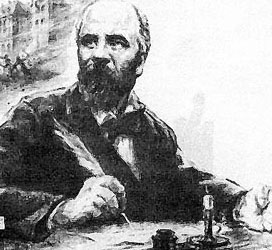
FRANCESE / FRENCH 1
Prima versione originale
First original version
Eugène Pottier, 1871
La seguente versione è probabilmente quella composta in un primissimo momento da Eugène Pottier durante la Comune di Parigi, e dovrebbe quindi essere considerata come la vera "versione originale"; in pratica, però, si tratta di una versione adesso quasi dimenticata; nel complesso, il suo carattere antimilitarista è ancora più chiaro e violento che nella versione storica. È stata scoperta e pubblicata nel 1974 da Robert Brécy (1912-1996), storico del movimento operaio francese e internazionale, che vi ha scritto sopra il fondamentale saggio A propos de l' 'Internationale' d'Eugène Pottier et de Pierre Degeyter" (Revue d'Histoire Moderne et Contemporaine / Année 1974, pp. 300-308). Il documento è adesso interamente disponibile in rete e rappresenta una lettura imprescindibile sulla storia dell'Internazionale.
The... (Continues)
Prima versione originale
First original version
Eugène Pottier, 1871
La seguente versione è probabilmente quella composta in un primissimo momento da Eugène Pottier durante la Comune di Parigi, e dovrebbe quindi essere considerata come la vera "versione originale"; in pratica, però, si tratta di una versione adesso quasi dimenticata; nel complesso, il suo carattere antimilitarista è ancora più chiaro e violento che nella versione storica. È stata scoperta e pubblicata nel 1974 da Robert Brécy (1912-1996), storico del movimento operaio francese e internazionale, che vi ha scritto sopra il fondamentale saggio A propos de l' 'Internationale' d'Eugène Pottier et de Pierre Degeyter" (Revue d'Histoire Moderne et Contemporaine / Année 1974, pp. 300-308). Il documento è adesso interamente disponibile in rete e rappresenta una lettura imprescindibile sulla storia dell'Internazionale.
The... (Continues)
L'INTERNATIONALE
(Continues)
(Continues)
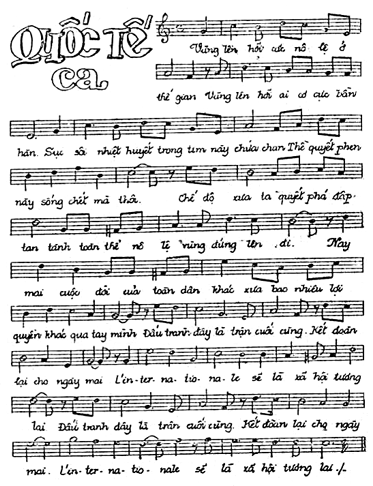
VIETNAMITA [1] / VIETNAMESE [1]
La versione standard in vietnamita (La prima strofa più il ritornello).
Standard Vietnamese version (First stanza and refrain).
La versione vietnamita corrente, “"Quốc tế ca", fu tradotta dal compositore Đỗ Minh. Una traduzione precedente, adattata dal leader rivoluzionario Hồ Chí Minh con uso della tradizionale forma metrica vietnamita del “ lục bát”, era stata popolare tra i soldati Việt Minh durante la Rivoluzione d'Agosto del 1945. La canzone fa parte del programma musicale scolastico per i ragazzi di 3a media in Vietnam, nel sistema educativo locale. A partire dal 2020, i membri del Partito Comunista del Vietnam devono cantare l'Internazionale durante la cerimonia di saluto alla bandiera, all'inizio di ogni assemblea di partito, dopo l'inno nazionale. [RV]
The most widely circulated Vietnamese version, "Quốc tế ca", was translated by composer... (Continues)
La versione standard in vietnamita (La prima strofa più il ritornello).
Standard Vietnamese version (First stanza and refrain).
La versione vietnamita corrente, “"Quốc tế ca", fu tradotta dal compositore Đỗ Minh. Una traduzione precedente, adattata dal leader rivoluzionario Hồ Chí Minh con uso della tradizionale forma metrica vietnamita del “ lục bát”, era stata popolare tra i soldati Việt Minh durante la Rivoluzione d'Agosto del 1945. La canzone fa parte del programma musicale scolastico per i ragazzi di 3a media in Vietnam, nel sistema educativo locale. A partire dal 2020, i membri del Partito Comunista del Vietnam devono cantare l'Internazionale durante la cerimonia di saluto alla bandiera, all'inizio di ogni assemblea di partito, dopo l'inno nazionale. [RV]
The most widely circulated Vietnamese version, "Quốc tế ca", was translated by composer... (Continues)
QUỐC TẾ CA
(Continues)
(Continues)
FRANCESE / FRENCH 3
Strofe aggiuntive di Jean-Claude Sestier
Additional verses by Jean-Claude Sestier
1988
Strofe aggiuntive di Jean-Claude Sestier
Additional verses by Jean-Claude Sestier
1988
Le seguenti due strofe sono state aggiunte da Jean-Claude Sestier nel 1988:
The following two verses were added by Jean-Claude Sestier in 1988:
Les suivantes deux couplets ont été ajoutés par Jean-Claude Sestier en 1988:
The following two verses were added by Jean-Claude Sestier in 1988:
Les suivantes deux couplets ont été ajoutés par Jean-Claude Sestier en 1988:
La monarchie républicaine [1]
(Continues)
(Continues)
COREANO / KOREAN 2
Versione ufficiale nella Repubblica Democratica Popolare di Corea (Corea del Nord)
Official version in the Democratic Popular Republic of Korea (North Korea)
1984
In Corea del Nord, per un certo periodo, è stata cantata la versione del Partito Comunista di Corea degli anni ‘20 del XX secolo; è stata però abbandonata per la sua associazione all’occupazione giapponese, in quanto, come già specificato, si tratta in pratica di una traduzione della versione giapponese. Già dal periodo successivo alla guerra di Corea (1950-1953) è stata probabilmente approntata una versione autonoma nordcoreana, basata sulla versione russa che era stata inno nazionale dell’URSS fino al 1944; tale versione deve avere subito diverse variazioni, note con i titoli di “Internazionale”, “Canzone internazionale” e “Canzone comunista internazionale”. Si arriva al 1984, quando Kim Il-sung, ancora vivo... (Continues)
Versione ufficiale nella Repubblica Democratica Popolare di Corea (Corea del Nord)
Official version in the Democratic Popular Republic of Korea (North Korea)
1984
In Corea del Nord, per un certo periodo, è stata cantata la versione del Partito Comunista di Corea degli anni ‘20 del XX secolo; è stata però abbandonata per la sua associazione all’occupazione giapponese, in quanto, come già specificato, si tratta in pratica di una traduzione della versione giapponese. Già dal periodo successivo alla guerra di Corea (1950-1953) è stata probabilmente approntata una versione autonoma nordcoreana, basata sulla versione russa che era stata inno nazionale dell’URSS fino al 1944; tale versione deve avere subito diverse variazioni, note con i titoli di “Internazionale”, “Canzone internazionale” e “Canzone comunista internazionale”. Si arriva al 1984, quando Kim Il-sung, ancora vivo... (Continues)
역사의 새주인 [1] [2] [3]
(Continues)
(Continues)
COREANO / KOREAN 3
Versione “della Gioventù Socialista” sudcoreana e del movimento operaio del Consiglio Nazionale dei Sindacati (Jeonnohyeop) / Version by South Korea’s “Socialist Youth” and National Labor Union Council (Labor Movement or Jeonnohyeop)
1989
Come è facile immaginare, in Corea del Sud l’Internazionale è stata a lungo bandita a partire dal dopoguerra. Durante la lunga e ferrea dittatura di Park Chung-hee (1961-1979) il suo canto, così come di ogni altro che fosse associato al Socialismo e al Comunismo, era severamente proibito e portava a conseguenze penali. Non era stata però dimenticata: probabilmente nella versione “classica” la si ricominciò a sentire durante le rivolte democratiche del 1971. Alla fine degli anni ‘80, con le rivolte sindacali e studentesche del 1987 (la “Rivolta di Giugno”), il Consiglio Nazionale dei Sindacati (Jeonnohyeop) e la Gioventù Socialista... (Continues)
Versione “della Gioventù Socialista” sudcoreana e del movimento operaio del Consiglio Nazionale dei Sindacati (Jeonnohyeop) / Version by South Korea’s “Socialist Youth” and National Labor Union Council (Labor Movement or Jeonnohyeop)
1989
Come è facile immaginare, in Corea del Sud l’Internazionale è stata a lungo bandita a partire dal dopoguerra. Durante la lunga e ferrea dittatura di Park Chung-hee (1961-1979) il suo canto, così come di ogni altro che fosse associato al Socialismo e al Comunismo, era severamente proibito e portava a conseguenze penali. Non era stata però dimenticata: probabilmente nella versione “classica” la si ricominciò a sentire durante le rivolte democratiche del 1971. Alla fine degli anni ‘80, con le rivolte sindacali e studentesche del 1987 (la “Rivolta di Giugno”), il Consiglio Nazionale dei Sindacati (Jeonnohyeop) e la Gioventù Socialista... (Continues)
인터내셔널 [1]
(Continues)
(Continues)

CINESE / CHINESE 1
La versione di Qu Qiubai / 瞿秋白 [ 同英德纳雄纳尔, Yīngdènàxióngnài'ěr ]
Qu Qiubai’s version / 瞿秋白 [ 同英德纳雄纳尔, Yīngdènàxióngnài'ěr ]
1923
La prima e “classica” versione cinese dell’Internazionale è quella del poeta, traduttore e attivista politico Qu Qiubai (1899-1935). Tra la fine degli anni ‘20 e l’inizio degli anni ‘30 del XX secolo, Qu Qiubai fu de facto il leader del Partito Comunista Cinese, prima di Mao Tse Tung. Fu fatto arrestare dal Kuomintang e fucilato il 18 giugno 1935.
Le origini di questa prima versione dell’Internazionale in cinese mandarino sembrano risalire al 1921, quando Qu Qiubai partecipò come capodelegazione cinese al IV Congresso del Comintern, svoltosi a Mosca. Quando i congressisti attaccarono a cantare l’Internazionale nelle proprie lingue, Qu Qiubai e la delegazione cinese non poterono unirsi al canto perché non esisteva una versione cinese. Secondo... (Continues)
La versione di Qu Qiubai / 瞿秋白 [ 同英德纳雄纳尔, Yīngdènàxióngnài'ěr ]
Qu Qiubai’s version / 瞿秋白 [ 同英德纳雄纳尔, Yīngdènàxióngnài'ěr ]
1923
La prima e “classica” versione cinese dell’Internazionale è quella del poeta, traduttore e attivista politico Qu Qiubai (1899-1935). Tra la fine degli anni ‘20 e l’inizio degli anni ‘30 del XX secolo, Qu Qiubai fu de facto il leader del Partito Comunista Cinese, prima di Mao Tse Tung. Fu fatto arrestare dal Kuomintang e fucilato il 18 giugno 1935.
Le origini di questa prima versione dell’Internazionale in cinese mandarino sembrano risalire al 1921, quando Qu Qiubai partecipò come capodelegazione cinese al IV Congresso del Comintern, svoltosi a Mosca. Quando i congressisti attaccarono a cantare l’Internazionale nelle proprie lingue, Qu Qiubai e la delegazione cinese non poterono unirsi al canto perché non esisteva una versione cinese. Secondo... (Continues)
[ 同英德纳雄纳尔 ] [1] [2]
(Continues)
(Continues)
Contributed by Xu Juayu (2010) + CCG/AWS Staff 2005/6/9 - 15:20
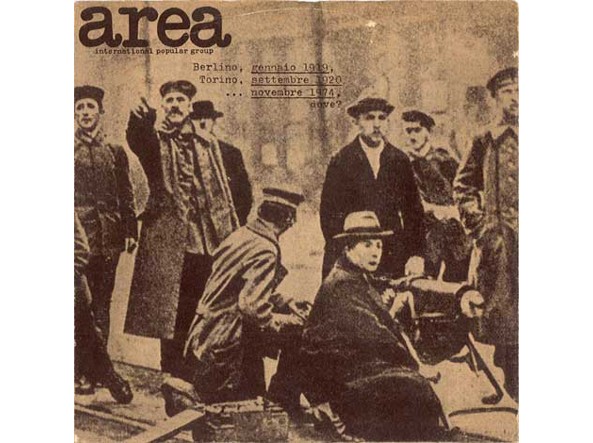
ITALIANO / ITALIAN 7
L'Internazionale strumentale degli AreA
Instrumental version by AreA
1974; in album, Are(A)zione, 1975
Rimanendo in ambito italiano, non si può non ricordare l'incredibile versione strumentale rock progressive dell'Internazionale, registrata nel 1974 dagli AreA.
As for the Italian versions of the "Internationale", special reference should be made to the astounding progressive rock version played by AreA in 1974. [Lorenzo Masetti]
Da Questa Pagina
From This page
«Questo lavoro, registrato nel 1974 nell'insolito formato dei 45 giri, ebbe esclusivamente una diffusione militante.
I proventi servirono a finanziare le spese legali sostenute in difesa dell'anarchico Marini ingiustamente carcerato.
Del nostro arrangiamento dell'inno dei lavoratori si può dire tutto, ma non che non abbia fatto un gran casino; infatti pare che una volta, in virtù di un ascolto a volume... (Continues)
L'Internazionale strumentale degli AreA
Instrumental version by AreA
1974; in album, Are(A)zione, 1975
Rimanendo in ambito italiano, non si può non ricordare l'incredibile versione strumentale rock progressive dell'Internazionale, registrata nel 1974 dagli AreA.
As for the Italian versions of the "Internationale", special reference should be made to the astounding progressive rock version played by AreA in 1974. [Lorenzo Masetti]
Da Questa Pagina
From This page
«Questo lavoro, registrato nel 1974 nell'insolito formato dei 45 giri, ebbe esclusivamente una diffusione militante.
I proventi servirono a finanziare le spese legali sostenute in difesa dell'anarchico Marini ingiustamente carcerato.
Del nostro arrangiamento dell'inno dei lavoratori si può dire tutto, ma non che non abbia fatto un gran casino; infatti pare che una volta, in virtù di un ascolto a volume... (Continues)
Lorenzo Masetti 2005/6/9 - 15:22
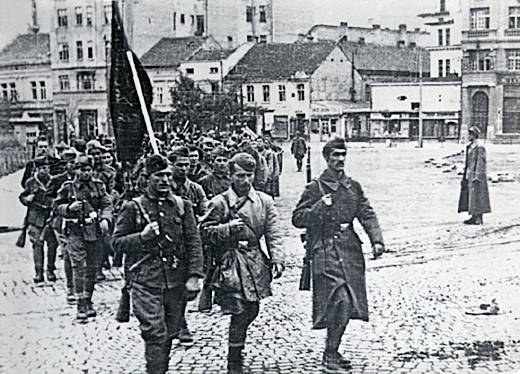
SERBO [1] / SERBIAN [1]
La presente è la variante in serbo (e in alfabeto cirillico) della versione del Partito Comunista Jugoslavo; vale a dire la “versione comune” o “Jugoslava” dell'Internazionale imposta nell'uso ufficiale, e comunemente cantata.
This is the Serbian variant (in Cyrillic characters) of the version of Yugoslav Communist Party, or “common”, or “Yugoslav” version of the Internationale imposed for official use and commonly sung.
This is the Serbian variant (in Cyrillic characters) of the version of Yugoslav Communist Party, or “common”, or “Yugoslav” version of the Internationale imposed for official use and commonly sung.
ИНТЕРПАЦИОНАЛА
(Continues)
(Continues)
Contributed by Riccardo Venturi 2005/6/9 - 19:49
SERBO [2] / SERBIAN [2]
A complicare ulteriormente le cose, una versione rimasta di autore totalmente sconosciuto e di cui si sono perse le fonti in rete. La versione (che viene data qui sia in alfabeto cirillico che latino) è composita, ma riflette caratteristiche linguistiche puramente serbe: la prima strofa è totalmente autonoma (cioè, non presente nelle altre versioni), il ritornello è quello della versione comune del Partito Comunista Jugoslavo e la seconda strofa è ripresa dalla versione di Milan Bogdanović.
Just to get things even more complicated, here's a version whose author is totally unknown; all sources are now lost in the Web. The version (given here both in Cyrillic and Latin characters) is mixed, and reflect purely Serbian linguistic characters: the first verse is totally independent (i.e., it does not occur in other versions), the refrain is taken from the version of Communist Party of Yugoslavia and the 2nd verse is taken from Milan Bogdanović's version. [RV]
Just to get things even more complicated, here's a version whose author is totally unknown; all sources are now lost in the Web. The version (given here both in Cyrillic and Latin characters) is mixed, and reflect purely Serbian linguistic characters: the first verse is totally independent (i.e., it does not occur in other versions), the refrain is taken from the version of Communist Party of Yugoslavia and the 2nd verse is taken from Milan Bogdanović's version. [RV]
ИНТEPНAЦИOНAЛA [1]
(Continues)
(Continues)
Contributed by Riccardo Venturi 2005/6/9 - 19:50
PERSIANO MODERNO [1] / MODERN PERSIAN [1]
La trascrizione semifonemica della versione persiana secondo il principio generalmente utilizzato dagli iranisti.
A semi-phonemic transcription of the foregoing Modern Persian version according to the principle commonly used by Iranists.
La trascrizione semifonemica della versione persiana secondo il principio generalmente utilizzato dagli iranisti.
A semi-phonemic transcription of the foregoing Modern Persian version according to the principle commonly used by Iranists.
ANTERNASYONAL
(Continues)
(Continues)
La ballata delle rivolte

Testo e musica di Germano Bonaveri
Quando Lada scappò dalla guerra, a Sarajevo, era una bimba. Lada è mia sorella, lo è diventata. Lada è stata comunque fortunata: mentre guardiamo la televisione e inorridiamo per la ferocia dell'uomo, bambini muoiono imbracciando il fucile, quando dovrebbero sorridere abbracciandosi in un girotondo. C'è da avere vergogna del genere umano, a volte.
Quando Lada scappò dalla guerra, a Sarajevo, era una bimba. Lada è mia sorella, lo è diventata. Lada è stata comunque fortunata: mentre guardiamo la televisione e inorridiamo per la ferocia dell'uomo, bambini muoiono imbracciando il fucile, quando dovrebbero sorridere abbracciandosi in un girotondo. C'è da avere vergogna del genere umano, a volte.
Una strana luce nel suo cielo
(Continues)
(Continues)
Contributed by adriana 2005/6/9 - 19:07
Song Itineraries:
Balkan Wars of the 90's
Bomba chiama bomba
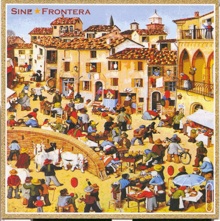
2003
Sine Frontera
Sine Frontera
Piange Marlene, Betty e Marlowe
(Continues)
(Continues)
Contributed by adriana 2005/6/8 - 16:27
Comme toi
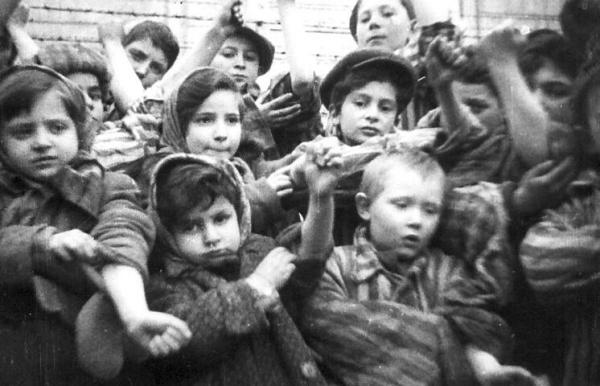
[1982]
Dall'album "Minoritaire"
Dall'album "Minoritaire"
Elle avait les yeux clairs et la robe en velours
(Continues)
(Continues)
Contributed by myname 2005/6/8 - 12:55
Song Itineraries:
Extermination camps
La guerra è finita

2003
Sine Frontera
Sine Frontera
Ho ancora la foto che mi hai regalato
(Continues)
(Continues)
Contributed by adriana 2005/6/8 - 09:32
Song Itineraries:
Anti War Love Songs
Birkenau

Birkenau
(Continues)
(Continues)
Contributed by adriana 2005/6/8 - 08:53
Song Itineraries:
Extermination camps
×
![]()


adattato da I Sarahawi popolo e deserto, dove si trova una versione più completa
Si veda anche http://www.saharawi.it/
Tratto dalla ricerca di
Nicola Malagoli
Il Sahara Occidentale è un territorio di circa 266000 Kmq che si affaccia sull’Atlantico per un migliaio di chilometri, confina con il Marocco, l’Algeria e la Mauritania. È in gran parte desertico, ma ricchissimo di risorse minerarie (soprattutto fosfati). Le coste sono pescosissime. I suoi confini sono convenzionali, poiché seguono in parte l'andamento dei paralleli e dei meridiani, tracciati dalle diplomazie europee in seguito alle decisioni della Conferenza di Berlino del 1884/85. Per molto tempo le popolazioni che nomadizzavano nel territorio ignorarono questi confini artificiali ma, a partire dagli inizi di questo secolo, sono diventati oggetto di un'attenta sorveglianza da parte della polizia... (Continues)